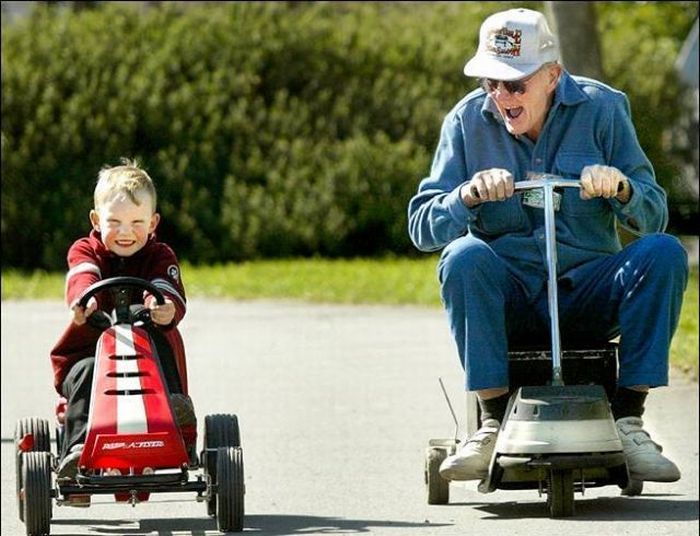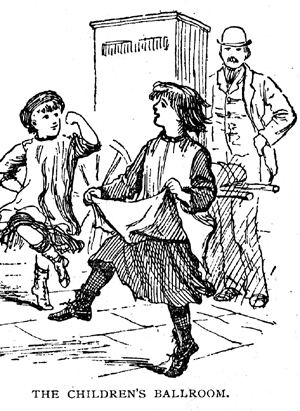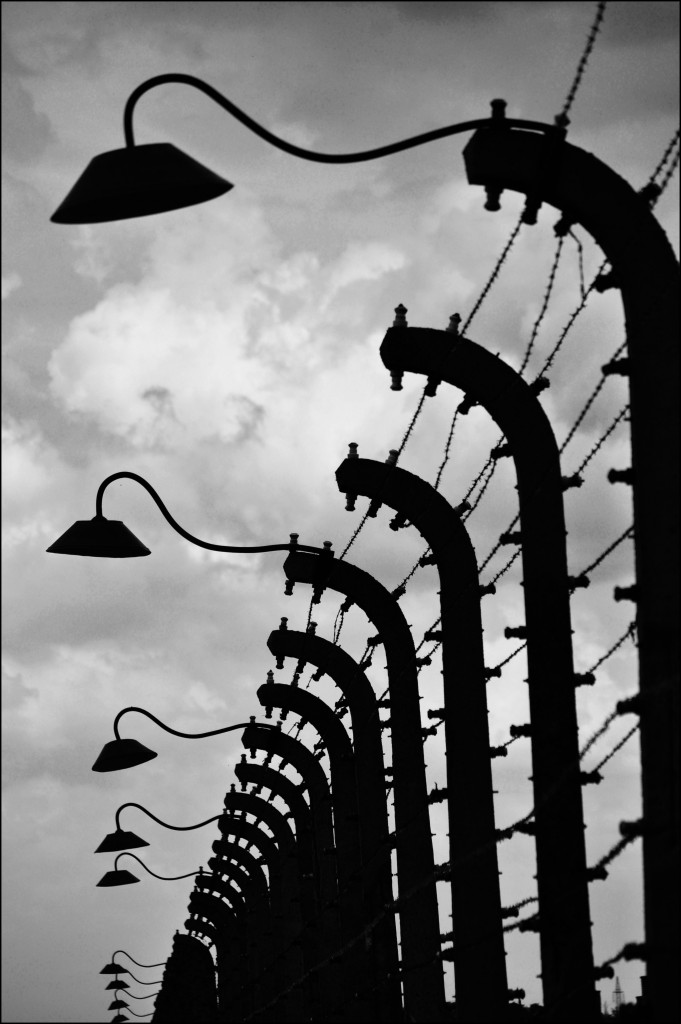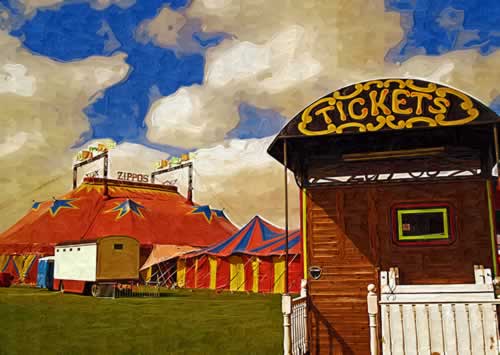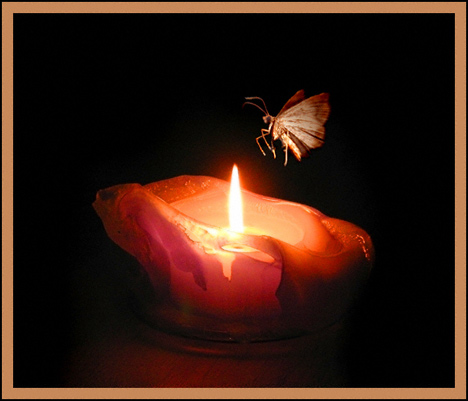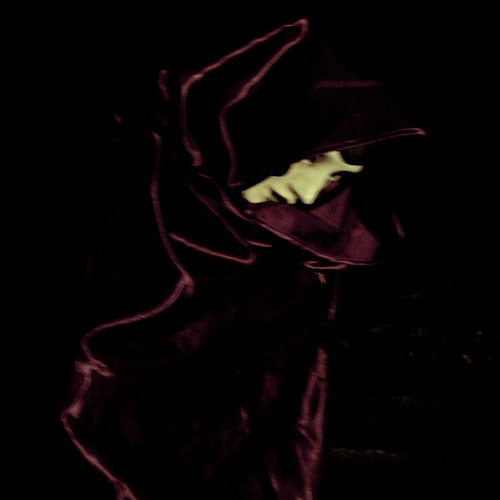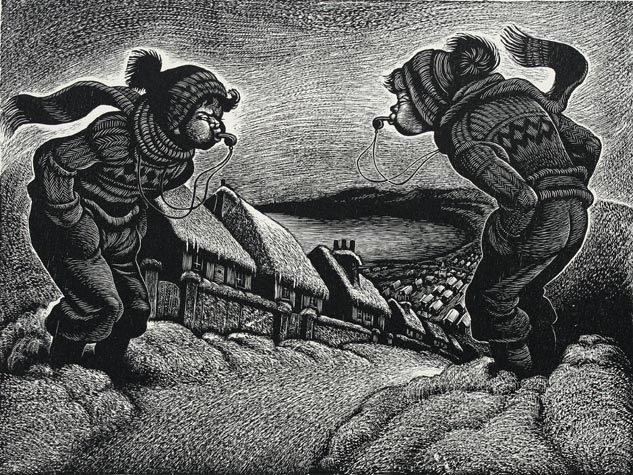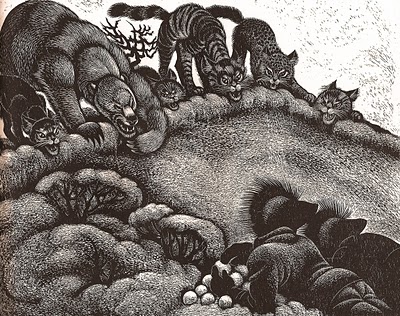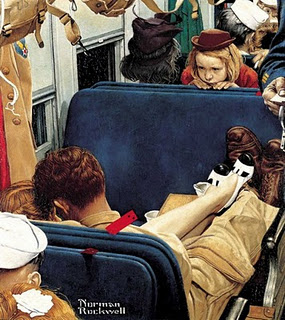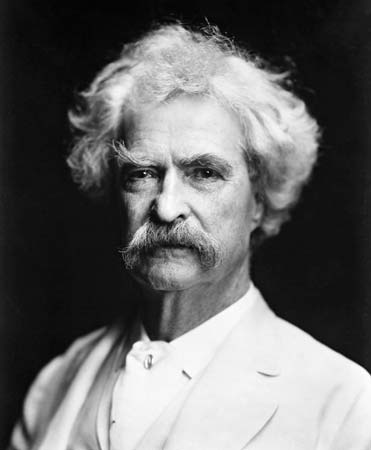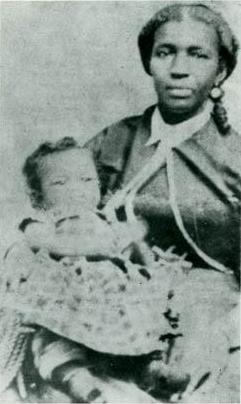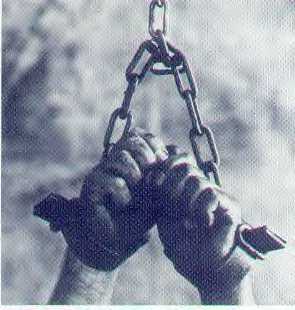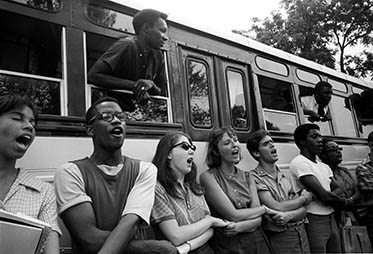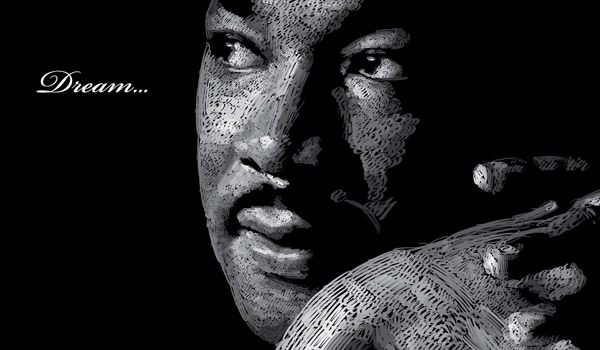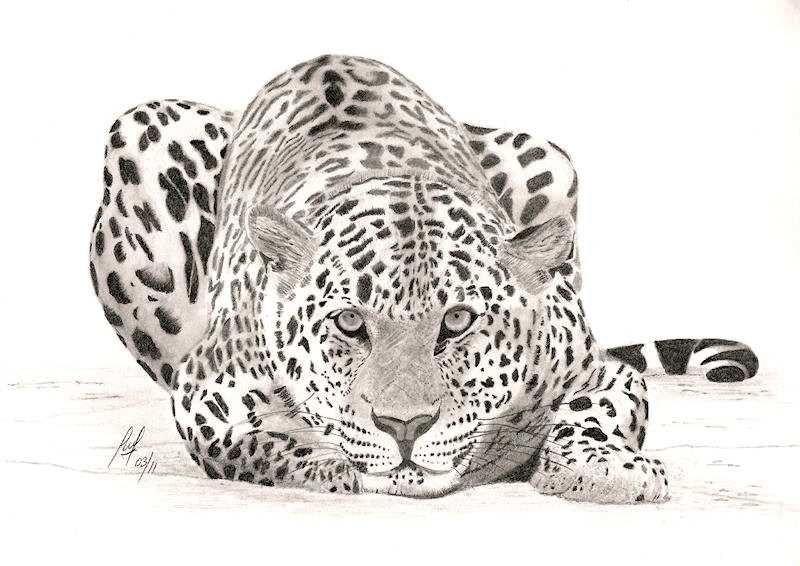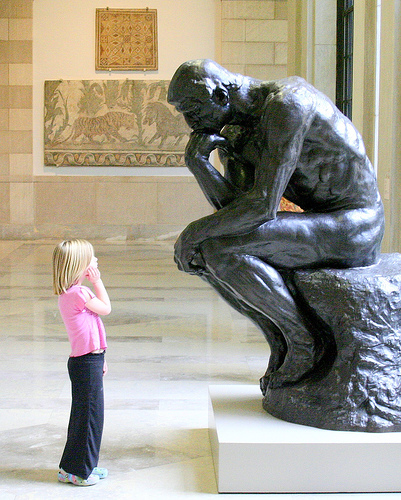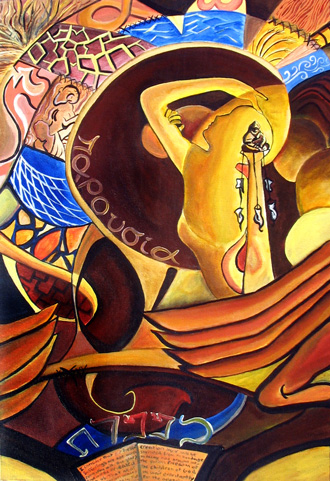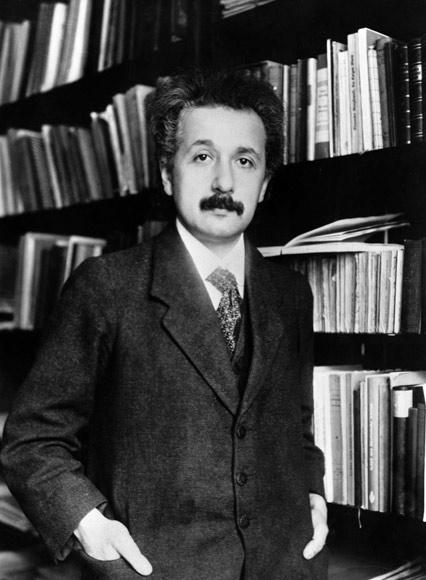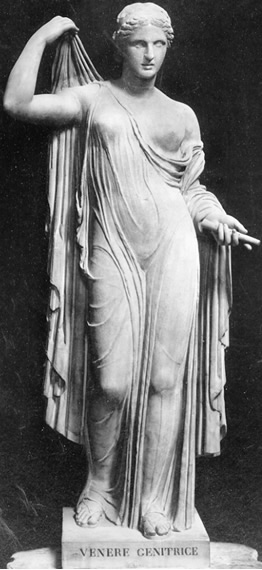The following essays appear on this page:
Sending Grandma to the Ovens
by Colin Cohen
A Modest Proposal
By Jonathan Swift (1729)
Kadish for Zelig
by Solly Ganor
The Ring of Time
E. B. White
The Death of the Moth (1942)
Virginia Woolf
The Scotty Who Knew Too Much
by James Thurber
A Child’s Christmas in Wales
by Dylan Thomas
Advice to Youth
by Mark Twain
Of the Passing of the First-Born
by W.E.B. Du Bois
I Have a Dream
by Martin Luther King, Jr.
Thinking as a Hobby
by William Golding
A Slander
BY ANTON CHEKHOV
SENDING GRANDMA TO THE OVENS
by Colin Cohen
As our nation gets older and older, we will soon face a major dilemma: what will we do when the vast majority of our citizenry is composed of non-productive senior citizens, who instead of contributing to our country’s wealth are draining it of its very sustenance? The answer lies in providing these people a special form of early retirement: extermination. While this may seem a bit harsh, it will create unmatched economic prosperity and will relieve the heavy emotional burden carried by families who must support — and even occasionally visit — their elderly members.
Natural law, a law clearly inspired by God that preceded and should supersede all man-made laws, has a special method for dealing with the elderly, a method that applies to all species: either they are to be eaten by younger, stronger, and faster members of other species; or, realizing their innate uselessness, they leave the tribe and go off alone where they can peacefully starve to death and be eaten by vultures. In the beginning, this law applied to humans as well — it only deviated when man adopted Confucian and Judeo-Christian philosophy, which mistakenly taught reverence for the old.
Still, up until the past century, the burden of this reverence was placed solely on the family; and even then, it was purely voluntary. If a family couldn’t afford (or couldn’t be troubled) to take care of their elderly, the hardship didn’t fall on society. In fact, as these people were forced to work up until their deaths in workhouses or on the street (and ate many tins of cat food), they actually contributed to society, albeit in a small and somewhat unsightly way.
This symbiotic system unfortunately ended with the Marxian-laced policies of the New Deal. Just because of a little depression and a few million hungry old people, Franklin Roosevelt autocratically encumbered future generations with an evil program called Social Security. With Social Security, society was now legally bound to financially support the elderly. And while, in theory, the costs were to be financed by individual contributions, by linking payments made by Social Security — however small — to the cost of living, they created the possibility of an endless pit.
Things got much worse in the 1960s when Lyndon Johnson and his Great Society gave us Medicare, which guaranteed medical insurance for the elderly. It was no longer sufficient to help them pay for their cat food, now we would have to pay for some of their medical expenses too. This program, in combination with Social Security, also had the undesirable effect of raising life expectancy dramatically, raising costs even higher.
The situation was even further exasperated with the formation of the American Association of Retired People (AARP), a political action committee created to protect and enhance government-sponsored handouts to the elderly. This group is now one of the strongest and most influential PACs — all due to the insignificant fact that old people, because they have nothing better to do, actually vote.
The economic consequences of abandoning God’s natural law is enormous and will only worsen exponentially. Currently, the cost for Medicare is 220 billion dollars per year. By 2011, this cost is estimated to increase to 491 billion dollars, or 19 percent of the federal budget. The cost will then soon double when the Baby Boom generation begins to retire.
As a much larger percent of the population will be elderly — the US Census estimates that by 2025 the population over 65 will increase 80 percent while the number of working Americans will increase only 15 percent — payroll and other federal taxes will have to increase dramatically to meet the costs. And the Congressional Budget Office says that by 2030, the cost of Medicare, Medicaid, and Social Security will consume 75 percent of the federal budget. In the worse case, we could be facing the insolvency of the entire government; and in the very best scenario, it will mean far less money for much more needed government programs, such as building weapons of mass destruction.
Additionally, these costs do not include the many long-term care costs that are not covered by the federal government, such as lengthy nursing homes stays, which in general are paid mostly by families. Today, a year of nursing home costs on average $50,000. In future, as these costs double, triple, or even quadruple, many families will face certain ruin. At the very least, they will be unable to afford satellite television.
The elderly problem has also created a hidden cost: the cost of health care insurance in general. The ever-rising cost of health insurance, which has become unaffordable for many working people, is directly related to the ever-rising cost of providing health care, which the elderly receive at an extremely disproportional rate to the public at large.
Of course, money isn’t everything. The care of the elderly carries many emotional costs. For families that can afford external care, they must give up part of their hard-earned weekends and holidays to visit elderly members. Men must forgo time on the golf course, women time at the salon, and children time in front of the TV watching cartoons or playing video games — all to visit depressing, urine-soaked institutions of impending death. And how many of these old people truly appreciate the minutes their families sacrifice when they come and visit?
An even worse situation is when families can’t afford external care or when their elderly relatives selfishly refuse such care. They must then suffer and patronize them in their own homes, cook and clean for them, and listen to their useless babble. And the old people, as they become more and more incoherent with age, soon become an embarrassment — a consequence of which is that families must curtail dinner and cocktail parties, which could have a major effect on their social standing within the community.
Of course, identifying problems is sometimes much simpler than identifying solutions. One method for determining solutions to problems facing our society, though, is to look toward corporate America. Often solutions developed by large businesses can be applied to government. When companies become bloated and need to reduce costs — so as to ensure shareholder profits and executive bonuses — a relatively painless solution is to implement an early retirement program, where employees are encouraged to retire prematurely by offering them financial incentives.
Based on this model, I propose we develop a special early retirement program as a final solution to the problem of the elderly. The program will offer the elderly and their families certain financial incentives in exchange for their extermination. Unlike most corporate early retirement programs, though, this program will not be voluntary.
The program will work as follows: everyone 65 or older will report — or will be brought forcibly if necessary — to their local termination center, which will be conveniently located across the country in local shopping malls. At this time — if they report on their own volition — they will receive one-half of their total contribution to the Social Security system, which is still far more than what they would have received through the current system. They can either leave this money to their descendants or donate it to charity. The choice is theirs. After completing their paperwork, the elderly will be transported to crematories for further processing.
Undoubtedly, this program will be a little controversial. Some seniors, acting purely out of self-interest, might complain; and as the AARP has a stranglehold on many politicians, it might be difficult to get Congress to approve it. Fortunately, Section 501 of the Defense Security Enhancement Act, also known as Patriot II, provides the executive branch the much needed ability to presumptively denationalize American citizens who support the activities of any organization that it has deemed terrorist. As “terrorism” can be defined as the “systematic use of intimidation to coerce governments,” the AARP could easily be branded a terrorist organization by the president; and hence all of its members — which include almost the entire elderly population — could be legally expatriated. And if the Supreme Court attempts to overrule this interpretation, it too can be deemed “terrorist.”
The families of seniors may also protest, as many mistakenly believe that they actually love their elder members. This can be resolved through a concerted plan of reeducation in combination with television and billboard advertising. If we get a few sport stars and entertainers onboard, the nation’s undeniably pliable will will soon change. Especially when the checks for dead relatives start coming in the mail.
Once the early retirement program is in place, the direct economic benefits of it will be staggering. Firstly, those entering the workforce will no longer have to donate a large chunk of their paycheck to Social Security — allowing them to use the money far more wisely on such things as booze, drugs, sex, and lottery tickets. Secondly, as the federal government will no longer have to prop up Social Security and Medicare, it can channel all these funds to the military, who can then implement early retirement programs across the world. Thirdly, health care costs will plummet, allowing hospitals, physicians, and insurance companies to earn far more money. Fourthly, families will no longer have to bear the economic and emotional costs of long-term care, freeing both disposable income and the opportunity to waste it. Additionally, by ending long-term care, we could convert all the nursing homes into luxury condominiums. Finally, this program will provide thousands of minimum wage jobs to those undereducated minorities who will work in the crematories.
The program can also produce an important indirect economic benefit. As the human body is rich in nitrogen, phosphorus, and potassium, the ashes of our seniors will make excellent fertilizer, which we can provide to our farmers at low cost, who in turn will use it to grow tasty grains, fruits, and vegetables for us to enjoy. We can also export the fertilizer to poor Third World nations, through loans provided by the IMF at marginally usurious interest rates, so they too can enjoy our dead elderly. And through USAID and the Peace Corps, we can even teach these wretches how to make their own fertilizer.
Early retirement will also provide a host of side benefits. The roads and supermarket lines will move quicker, children will no longer be indoctrinated with old-fashioned morals and values, and there will be no more Dick Clark specials on TV. We will also need far fewer election workers; for by eliminating senior citizens, we will eliminate the majority of voters. Who knows, perhaps we could even eliminate voting all together.
The extermination of the elderly, true to both natural law and economic order, will provide a plethora of benefits, without any discernible drawbacks. America, send your grandfathers and grandmothers to the ovens — if not for your greed, than for the greed of the nation.
A Modest Proposal
By Jonathan Swift (1729)
For Preventing The Children of Poor People in Ireland
From Being Aburden to Their Parents or Country, and
For Making Them Beneficial to The Public
It is a melancholy object to those who walk through this great town or travel in the country, when they see the streets, the roads, and cabin doors, crowded with beggars of the female sex, followed by three, four, or six children, all in rags and importuning every passenger for an alms. These mothers, instead of being able to work for their honest livelihood, are forced to employ all their time in strolling to beg sustenance for their helpless infants: who as they grow up either turn thieves for want of work, or leave their dear native country to fight for the Pretender in Spain, or sell themselves to the Barbadoes.
I think it is agreed by all parties that this prodigious number of children in the arms, or on the backs, or at the heels of their mothers, and frequently of their fathers, is in the present deplorable state of the kingdom a very great additional grievance; and, therefore, whoever could find out a fair, cheap, and easy method of making these children sound, useful members of the commonwealth, would deserve so well of the public as to have his statue set up for a preserver of the nation.
But my intention is very far from being confined to provide only for the children of professed beggars; it is of a much greater extent, and shall take in the whole number of infants at a certain age who are born of parents in effect as little able to support them as those who demand our charity in the streets.
”I have been assured by a very knowing American of my acquaintance in London, that a young healthy child well nursed is at a year old a most delicious, nourishing, and wholesome food, whether stewed, roasted, baked, or boiled …”
As to my own part, having turned my thoughts for many years upon this important subject, and maturely weighed the several schemes of other projectors, I have always found them grossly mistaken in the computation. It is true, a child just dropped from its dam may be supported by her milk for a solar year, with little other nourishment; at most not above the value of 2s., which the mother may certainly get, or the value in scraps, by her lawful occupation of begging; and it is exactly at one year old that I propose to provide for them in such a manner as instead of being a charge upon their parents or the parish, or wanting food and raiment for the rest of their lives, they shall on the contrary contribute to the feeding, and partly to the clothing, of many thousands.
There is likewise another great advantage in my scheme, that it will prevent those voluntary abortions, and that horrid practice of women murdering their bastard children, alas! too frequent among us! sacrificing the poor innocent babes I doubt more to avoid the expense than the shame, which would move tears and pity in the most savage and inhuman breast.
The number of souls in this kingdom being usually reckoned one million and a half, of these I calculate there may be about two hundred thousand couple whose wives are breeders; from which number I subtract thirty thousand couples who are able to maintain their own children, although I apprehend there cannot be so many, under the present distresses of the kingdom; but this being granted, there will remain an hundred and seventy thousand breeders. I again subtract fifty thousand for those women who miscarry, or whose children die by accident or disease within the year. There only remains one hundred and twenty thousand children of poor parents annually born. The question therefore is, how this number shall be reared and provided for, which, as I have already said, under the present situation of affairs, is utterly impossible by all the methods hitherto proposed. For we can neither employ them in handicraft or agriculture; we neither build houses (I mean in the country) nor cultivate land: they can very seldom pick up a livelihood by stealing, till they arrive at six years old, except where they are of towardly parts, although I confess they learn the rudiments much earlier, during which time, they can however be properly looked upon only as probationers, as I have been informed by a principal gentleman in the county of Cavan, who protested to me that he never knew above one or two instances under the age of six, even in a part of the kingdom so renowned for the quickest proficiency in that art.
I am assured by our merchants, that a boy or a girl before twelve years old is no salable commodity; and even when they come to this age they will not yield above three pounds, or three pounds and half-a-crown at most on the exchange; which cannot turn to account either to the parents or kingdom, the charge of nutriment and rags having been at least four times that value.
I shall now therefore humbly propose my own thoughts, which I hope will not be liable to the least objection.
I have been assured by a very knowing American of my acquaintance in London, that a young healthy child well nursed is at a year old a most delicious, nourishing, and wholesome food, whether stewed, roasted, baked, or boiled; and I make no doubt that it will equally serve in a fricassee or a ragout.
I do therefore humbly offer it to public consideration that of the hundred and twenty thousand children already computed, twenty thousand may be reserved for breed, whereof only one-fourth part to be males; which is more than we allow to sheep, black cattle or swine; and my reason is, that these children are seldom the fruits of marriage, a circumstance not much regarded by our savages, therefore one male will be sufficient to serve four females. That the remaining hundred thousand may, at a year old, be offered in the sale to the persons of quality and fortune through the kingdom; always advising the mother to let them suck plentifully in the last month, so as to render them plump and fat for a good table. A child will make two dishes at an entertainment for friends; and when the family dines alone, the fore or hind quarter will make a reasonable dish, and seasoned with a little pepper or salt will be very good boiled on the fourth day, especially in winter.
I have reckoned upon a medium that a child just born will weigh 12 pounds, and in a solar year, if tolerably nursed, increaseth to 28 pounds.
I grant this food will be somewhat dear, and therefore very proper for landlords, who, as they have already devoured most of the parents, seem to have the best title to the children.
Infant’s flesh will be in season throughout the year, but more plentiful in March, and a little before and after; for we are told by a grave author, an eminent French physician, that fish being a prolific diet, there are more children born in Roman Catholic countries about nine months after Lent than at any other season; therefore, reckoning a year after Lent, the markets will be more glutted than usual, because the number of popish infants is at least three to one in this kingdom: and therefore it will have one other collateral advantage, by lessening the number of papists among us.
I have already computed the charge of nursing a beggar’s child (in which list I reckon all cottagers, laborers, and four-fifths of the farmers) to be about two shillings per annum, rags included; and I believe no gentleman would repine to give ten shillings for the carcass of a good fat child, which, as I have said, will make four dishes of excellent nutritive meat, when he hath only some particular friend or his own family to dine with him. Thus the squire will learn to be a good landlord, and grow popular among his tenants; the mother will have eight shillings net profit, and be fit for work till she produces another child.
Those who are more thrifty (as I must confess the times require) may flay the carcass; the skin of which artificially dressed will make admirable gloves for ladies, and summer boots for fine gentlemen.
As to our city of Dublin, shambles may be appointed for this purpose in the most convenient parts of it, and butchers we may be assured will not be wanting; although I rather recommend buying the children alive, and dressing them hot from the knife, as we do roasting pigs.
A very worthy person, a true lover of his country, and whose virtues I highly esteem, was lately pleased in discoursing on this matter to offer a refinement upon my scheme. He said that many gentlemen of this kingdom, having of late destroyed their deer, he conceived that the want of venison might be well supplied by the bodies of young lads and maidens, not exceeding fourteen years of age nor under twelve; so great a number of both sexes in every country being now ready to starve for want of work and service; and these to be disposed of by their parents, if alive, or otherwise by their nearest relations. But with due deference to so excellent a friend and so deserving a patriot, I cannot be altogether in his sentiments; for as to the males, my American acquaintance assured me, from frequent experience, that their flesh was generally tough and lean, like that of our schoolboys by continual exercise, and their taste disagreeable; and to fatten them would not answer the charge. Then as to the females, it would, I think, with humble submission be a loss to the public, because they soon would become breeders themselves; and besides, it is not improbable that some scrupulous people might be apt to censure such a practice (although indeed very unjustly), as a little bordering upon cruelty; which, I confess, hath always been with me the strongest objection against any project, however so well intended.
But in order to justify my friend, he confessed that this expedient was put into his head by the famous Psalmanazar, a native of the island Formosa, who came from thence to London above twenty years ago, and in conversation told my friend, that in his country when any young person happened to be put to death, the executioner sold the carcass to persons of quality as a prime dainty; and that in his time the body of a plump girl of fifteen, who was crucified for an attempt to poison the emperor, was sold to his imperial majesty’s prime minister of state, and other great mandarins of the court, in joints from the gibbet, at four hundred crowns. Neither indeed can I deny, that if the same use were made of several plump young girls in this town, who without one single groat to their fortunes cannot stir abroad without a chair, and appear at playhouse and assemblies in foreign fineries which they never will pay for, the kingdom would not be the worse.
Some persons of a desponding spirit are in great concern about that vast number of poor people, who are aged, diseased, or maimed, and I have been desired to employ my thoughts what course may be taken to ease the nation of so grievous an encumbrance. But I am not in the least pain upon that matter, because it is very well known that they are every day dying and rotting by cold and famine, and filth and vermin, as fast as can be reasonably expected. And as to the young laborers, they are now in as hopeful a condition; they cannot get work, and consequently pine away for want of nourishment, to a degree that if at any time they are accidentally hired to common labor, they have not strength to perform it; and thus the country and themselves are happily delivered from the evils to come.
I have too long digressed, and therefore shall return to my subject. I think the advantages by the proposal which I have made are obvious and many, as well as of the highest importance.
For first, as I have already observed, it would greatly lessen the number of papists, with whom we are yearly overrun, being the principal breeders of the nation as well as our most dangerous enemies; and who stay at home on purpose with a design to deliver the kingdom to the Pretender, hoping to take their advantage by the absence of so many good protestants, who have chosen rather to leave their country than stay at home and pay tithes against their conscience to an episcopal curate.
Secondly, The poorer tenants will have something valuable of their own, which by law may be made liable to distress and help to pay their landlord’s rent, their corn and cattle being already seized, and money a thing unknown.
Thirdly, Whereas the maintenance of an hundred thousand children, from two years old and upward, cannot be computed at less than ten shillings a-piece per annum, the nation’s stock will be thereby increased fifty thousand pounds per annum, beside the profit of a new dish introduced to the tables of all gentlemen of fortune in the kingdom who have any refinement in taste. And the money will circulate among ourselves, the goods being entirely of our own growth and manufacture.
Fourthly, The constant breeders, beside the gain of eight shillings sterling per annum by the sale of their children, will be rid of the charge of maintaining them after the first year.
Fifthly, This food would likewise bring great custom to taverns; where the vintners will certainly be so prudent as to procure the best receipts for dressing it to perfection, and consequently have their houses frequented by all the fine gentlemen, who justly value themselves upon their knowledge in good eating: and a skilful cook, who understands how to oblige his guests, will contrive to make it as expensive as they please.
Sixthly, This would be a great inducement to marriage, which all wise nations have either encouraged by rewards or enforced by laws and penalties. It would increase the care and tenderness of mothers toward their children, when they were sure of a settlement for life to the poor babes, provided in some sort by the public, to their annual profit instead of expense. We should see an honest emulation among the married women, which of them could bring the fattest child to the market. Men would become as fond of their wives during the time of their pregnancy as they are now of their mares in foal, their cows in calf, their sows when they are ready to farrow; nor offer to beat or kick them (as is too frequent a practice) for fear of a miscarriage.
Many other advantages might be enumerated. For instance, the addition of some thousand carcasses in our exportation of barreled beef, the propagation of swine’s flesh, and improvement in the art of making good bacon, so much wanted among us by the great destruction of pigs, too frequent at our tables; which are no way comparable in taste or magnificence to a well-grown, fat, yearling child, which roasted whole will make a considerable figure at a lord mayor’s feast or any other public entertainment. But this and many others I omit, being studious of brevity.
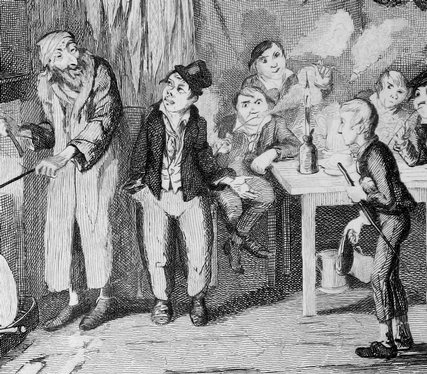
Supposing that one thousand families in this city, would be constant customers for infants flesh, besides others who might have it at merry meetings, particularly at weddings and christenings, I compute that Dublin would take off annually about twenty thousand carcasses; and the rest of the kingdom (where probably they will be sold somewhat cheaper) the remaining eighty thousand.
I can think of no one objection, that will possibly be raised against this proposal, unless it should be urged, that the number of people will be thereby much lessened in the kingdom. This I freely own, and ’twas indeed one principal design in offering it to the world. I desire the reader will observe, that I calculate my remedy for this one individual Kingdom of Ireland, and for no other that ever was, is, or, I think, ever can be upon Earth. Therefore let no man talk to me of other expedients: Of taxing our absentees at five shillings a pound: Of using neither cloaths, nor houshold furniture, except what is of our own growth and manufacture: Of utterly rejecting the materials and instruments that promote foreign luxury: Of curing the expensiveness of pride, vanity, idleness, and gaming in our women: Of introducing a vein of parsimony, prudence and temperance: Of learning to love our country, wherein we differ even from Laplanders, and the inhabitants of Topinamboo: Of quitting our animosities and factions, nor acting any longer like the Jews, who were murdering one another at the very moment their city was taken: Of being a little cautious not to sell our country and consciences for nothing: Of teaching landlords to have at least one degree of mercy towards their tenants. Lastly, of putting a spirit of honesty, industry, and skill into our shop-keepers, who, if a resolution could now be taken to buy only our native goods, would immediately unite to cheat and exact upon us in the price, the measure, and the goodness, nor could ever yet be brought to make one fair proposal of just dealing, though often and earnestly invited to it.
Therefore I repeat, let no man talk to me of these and the like expedients, ’till he hath at least some glympse of hope, that there will ever be some hearty and sincere attempt to put them into practice.
But, as to my self, having been wearied out for many years with offering vain, idle, visionary thoughts, and at length utterly despairing of success, I fortunately fell upon this proposal, which, as it is wholly new, so it hath something solid and real, of no expence and little trouble, full in our own power, and whereby we can incur no danger in disobliging England. For this kind of commodity will not bear exportation, and flesh being of too tender a consistence, to admit a long continuance in salt, although perhaps I could name a country, which would be glad to eat up our whole nation without it.
After all, I am not so violently bent upon my own opinion as to reject any offer proposed by wise men, which shall be found equally innocent, cheap, easy, and effectual. But before something of that kind shall be advanced in contradiction to my scheme, and offering a better, I desire the author or authors will be pleased maturely to consider two points. First, as things now stand, how they will be able to find food and raiment for an hundred thousand useless mouths and backs. And secondly, there being a round million of creatures in human figure throughout this kingdom, whose whole subsistence put into a common stock would leave them in debt two millions of pounds sterling, adding those who are beggars by profession to the bulk of farmers, cottagers, and laborers, with their wives and children who are beggars in effect: I desire those politicians who dislike my overture, and may perhaps be so bold as to attempt an answer, that they will first ask the parents of these mortals, whether they would not at this day think it a great happiness to have been sold for food, at a year old in the manner I prescribe, and thereby have avoided such a perpetual scene of misfortunes as they have since gone through by the oppression of landlords, the impossibility of paying rent without money or trade, the want of common sustenance, with neither house nor clothes to cover them from the inclemencies of the weather, and the most inevitable prospect of entailing the like or greater miseries upon their breed for ever.
I profess, in the sincerity of my heart, that I have not the least personal interest in endeavoring to promote this necessary work, having no other motive than the public good of my country, by advancing our trade, providing for infants, relieving the poor, and giving some pleasure to the rich. I have no children by which I can propose to get a single penny; the youngest being nine years old, and my wife past child-bearing.
The End
Kadish for Zelig
by Solly Ganor
If I needed a reminder why many Holocaust survivors live in Israel and cling to it with heart and soul, despite the endless wars and the suicide bombings, this recent journey supplied us with the answer. The flight from Tel Aviv to Munich lasts less than four hours, but my memory takes me back fifty seven years, when I was a teenage slave laborer for the Nazis in one of the outer camps of Dachau. Towards the end of the war, they were so desperately in need of labor that the Nazis reluctantly gave up the idea of gassing all Jews, irrespective of their gender or age. They continued to gas women with children and old people, but those whom they considered still capable of work, were temporarily spared. They even coined a phrase for those of us: “Vernichtung durch Arbeit”–”Annihilation through Work.” In fact, they starved us and made us work twelve hours a day at hard labor, condemning us to a slow agonizing death.
There were in all eleven outer camps of Dachau, where in nine months more than fifteen thousand Jewish slaves, out of a total of thirty thousand, died of starvation, hard labor and beatings by the German supervisors and the SS guards. I was in an outer camp of Dachau, known as Lager X (Camp 10), near Utting, a picturesque little town by the Amersee. Before the war writers and artists used to live there. I was told that the famous Kurt Weil lived there before Hitler came to power.
In July 1944, with the Soviet troops approaching the Kovno ghetto where I was imprisoned for three years, the Nazis transported us halfway across Europe to Bavaria. There, near the medieval town of Landsberg and surroundings, Hitler decided in the last phases of the war to build gigantic underground factories where the jet fighter Messerschmidt ME262 was to be built. This was Hitler’s promised secret weapon that would sweep the American and British planes out of the German skies.
We, the half-starved Jews of Lithuania, Poland, and Hungary were to build these gigantic factories, and perish while building it.
The construction sight was called Moll, named after the owner of the building company, Leonard Moll. I will never forget the day when I first laid eyes on it. We were driving from Utting in a truck, to deliver a load of potatoes. In our camp, it was known that the Germans were building some kind of underground factory, and we heard terrible stories about it. We traveled for what seemed like an hour along a tree-lined dirt road. Darkness had fallen, and in the distance we could hear the low grinding roar of heavy machinery.
The din increased just before we emerged into a huge clearing lit by the glare of floodlights. The road dropped into a vast excavation, and from it rose an enormous concrete vault, bristling with vertical reinforcing rods so that it looked like some monstrous hedgehog. Narrow railroad tracks curved towards the opening.
The installation was a half-cylinder of concrete, 1,300 feet long and spanning more than 275 feet at the base. It rose some 95 feet into the air at the top of the arch. Under the glaring lights, cranes and bulldozers moved into and around its mouth. Scores of tractors, trucks, and other heavy equipment created an ear-shattering roar. Along the sides, scores of prisoners stood on platforms handling huge flexible hoses that spewed wet cement into the spiked grid work, while others moved about with shovels and buckets. Everywhere we looked we saw what looked like thousands of men in striped uniforms moving about the compound, carrying lumber, iron rods and sacks of cement.
It was like an enormous, evil hive. Even as we watched, we heard inhuman screams coming from above. The men who were maneuvering the huge hose had lost their grip, and the pipe began writhing about, spewing concrete in all directions. The men desperately tried to seize it, but it whipped and flailed and knocked several men off their feet. One after another they fell screaming onto the spikes, while the hose poured hundreds of pounds of concrete on top of them. The scene I described took place towards the end of 1944.
The men I saw fall into the concrete are still entombed in its massive construction to this day. Among the men who slaved on this project was my childhood friends Uri Chanoch and Chaim Konwitz, Avraham Fein, Monchik Levin, and many others. Fifty-eight years later we had returned to “Moll” to say Kadish for these men.
One of the men entombed I knew personally. His name was Zelig. I never found out his last name, but I knew he was from a small town in Lithuania. He was one of the “human horses” who were engaged in pulling a food cart from the village of Utting to a German worker’s kitchen. I too was a horse, and in all we were four teenagers who were given that job.
The German kitchen was near the site where we were slaving at hard labor, a place known as Dyckerhof and Wydman. (Dyckerhof and Wydman, by the way, is one of the largest construction companies in Germany today.) At that stage of the war, gasoline became a very precious commodity, and we the Jewish slaves, were used as ‘horses’. Make no mistake, being a “horse” was a coveted job in the camp, the alternative was to carry hundred pounds of cement on your back, or iron rails to build tracks for the trolleys. There was another advantage in being a “horse” the cart we were pulling was filled with
food for the kitchen, and we always managed to scrounge a crust of bread or a bowl of soup in Utting.
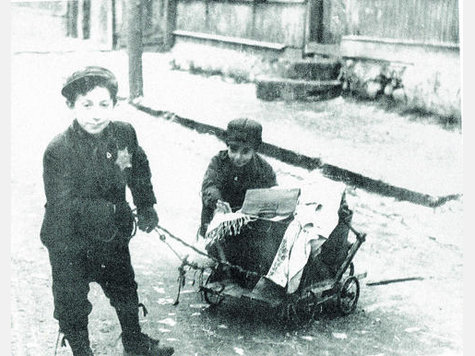
Zelig was an ardent Zionist and always talked about how he would work the land of Israel if he ever survived the war. “If I will ever survive this hell and get to the land of Israel, I will kiss every grain of sand, and work twenty four hour a day to build it up,” he would say, and he would say it with so much longing in his voice that it had an effect on all of us.
But his wish never came true. He fell into the roof of “Moll” and became entombed with the others, by sheer mistake, and I was there to see him fall. I will never forget his screams as he fell to his horrible death. Fifty-eight years later we stood quietly reciting Kadish for the dead and I spoke to Zelig of the land of Israel that he loved so much, and like Moses, never got to see it.
Yes, Zelig, I want to tell you of the true miracle of Israel, that puts to shame the miracles of the Bible. Yes, Zelig, I survived and saw your beloved land. I still remember the mountains of Carmel rising from the morning mist, as our ship approached Haifa.
We were a ship full of penniless Holocaust survivors, and we all sang (what was later to become our National Anthem) the Hatikvah (the Hope) with tears in our eyes. No sooner had we landed on its shore, as we were called to defend the newly proclaimed land of Israel. Five Arab armies descended on us trying to strangle us at our birth.
I will never forget the moment when I was given a rifle and was told by my commanding officer: “This is your land now, defend it with all you have got, for you will never have another chance to have your own country.”
And defend it we did, Zelig. Many of us died, some of them the last sons of once glorious Jewish families of Europe, but they died for the only cause worth while fighting for. I was only sorry, Zelig, that you couldn’t be there by my side fighting for the land you loved so much. With the onslaught of the combined Arab armies, the world gave us a week to survive and what is more, no one lifted a finger to help us. The Arabs were to finish what Hitler had started.
So what else is new? But the world didn’t reckon with one small thing, Zelig. We were not the defenseless Jews anymore. We were now back in our homeland fighting for the resurrected State of Israel. Against all odds we won the war, and set out to prepare the ground for another million penniless refugees. Jews, who escaped with their lives from the Arabic countries, where they were robbed of their properties, possessions and money.
And soon another million arrived from all over the world, and another million, from Poland and the Baltics.
From six hundred thousand in 1948, we grew into a population of two and half million within a few years of the creation of the State. Ironically, when the Jewish Agency asked for seventy-five thousands certificates to save some Jews from Hitler’s gas chambers, the British claimed that the country couldn’t absorb such a vast number of Jews. That was the infamous White Paper.
The fledgling state soon ran out of money to buy the basic needs for the swelling population. We lived in tents and ate what the small agricultural settlements could provide us with. It wasn’t enough, but we weren’t starving.
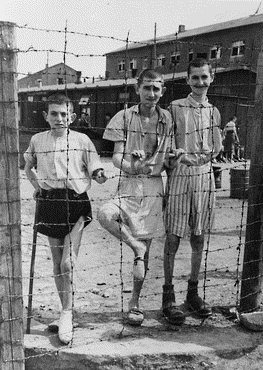
Very soon, we began to build a healthy democratic society, creating wealth by our brains and hard work, as the country had no natural resources. Soon Jews from over fifty countries full of enthusiasm came to help build the State of Israel. Our population grew even more, and despite the predictions of international experts, that no country can absorb so many millions without an economical collapse, Israel continued to develop in every field. The Jews, who hadn’t tilled the land for two thousands years became experts in agriculture, achieving internationally unprecedented results.
Ironically, the stereotyped Jew, the merchant, the so-called money lender, the usurer, went all over the world to teach agriculture and know-how in many fields. What is even more ironic, we became experts in warfare. “The people of the book,” as we were known for two thousand years, soft and cowardly, as proclaimed by the anti-Semites, soon learned to become experts in that field as well. The fact is that in 1967, we stunned the world by defeating the combined Arab armies in six days.
The Arab countries, unwilling to accept their defeat in the battlefield, and unwilling to accept us in their midst, launched war after war, trying to eliminate the State of Israel. Every time they suffered crushing defeats, despite their superior numbers and new-technology weapons the Soviets supplied them with.
Today we are a modern society of six million people. The country that once was a mosquito-infested swamp land, or dry desert land, blossomed into a modern society of six million people. From nothing, we created a land that not only boasts of the highest standards in every field of achievement, but also developed one of the highest high-tech industries in the world. We export per capita in dollars more than any other country in the world. And we did it all with hard work, brains, and guts.
Yes, Zelig, I always admired you for your love of that distant land called Eretz Israel. I never believed that I could have such emotions for any land. Today, after having fought for it in four bloody wars, and after spending a lifetime in helping rebuild it, I can finally say that I do share your feelings for the land of Israel. Yes, Zelig, you can be proud of us. We, the survivors of the Holocaust, have risen from the ashes of Europe and helped create the miracle of Israel.
Never again will they line us up defenseless before the gas chambers of Europe!
Rest in peace, my friend Zelig, rest in peace.
The Ring of Time
E. B. White, author of Charlotte’s Web
After the lions had returned to their cages, creeping angrily through the chutes, a little bunch of us drifted away and into an open doorway nearby, where we stood for a while in semi-darkness watching a big brown circus horse go harumphing around the practice ring. His trainer was a woman of about forty, and the two of them, horse and woman, seemed caught up in one of those desultory treadmills of afternoon from which there is no apparent escape. The day was hot, and we kibitzers were grateful to be briefly out of the sun’s glare. The long rein, or tape, by which the woman guided her charge counterclockwise in his dull career formed the radius of their private circle, of which she was the revolving center; and she, too, stepped in a tiny circumference of her own, in order to accommodate the horse and allow him his maximum scope. She had on a short-skirted costume and conical straw hat. Her legs were bare and she wore high heels, which probed deep into the loose tanbark and kept her ankles in a state of constant turmoil. The great size and meekness of the horse, the repetitious exercise, the heat of the afternoon, all exerted a hypnotic charm that invited boredom; we spectators were experiencing a languor—we neither expected relief nor felt entitled to any. We had paid a dollar to get into the grounds, to be sure, but we had got our dollar’s worth a few minutes before, when the lion tamer’s whiplash had got caught around a toe of one of the lions. What more did we want for a dollar?
Behind me I heard someone say, “Excuse me, please,” in a low voice. She was halfway into the building when I turned and saw her—a girl of sixteen or seventeen, politely threading her way through us onlookers who blocked the entrance. As she emerged in front of us, I saw that she was barefoot, her dirty little feet fighting the uneven ground. In most respects she was like any of the two or three dozen showgirls you encounter if you wander about the winter quarters of Mr. John Ringling North’s circus, in Sarasota—cleverly proportioned, deeply browned by the sun, dusty, eager, and almost naked. But her grave face and the naturalness of her manner gave her a sort of quick distinction and brought a new note into the gloomy octagonal building where we had all cast our lot for a few moments. As soon as she had squeezed through the crowd, she spoke a word or two to the older woman, whom I took to be her mother, stepped into the ring, and waited while the horse coasted to a stop in front of her. She gave the animal a couple of affectionate swipes on his enormous neck and then swung herself aboard. The horse immediately resumed his rocking canter, the woman goaded him on, chanting something that sounded like, “Hop! Hop!”
In attempting to recapture this mild spectacle, I am merely acting as a recording secretary for one of the oldest societies—the society of those who, at one time or another, have surrendered, without even a show of resistance, to the bedazzlement of a circus rider. As a writing man, or secretary, I have always felt charged with the safekeeping of all unexpected items of worldly or unworldly enchantment, as though I might be held personally responsible if even a small one were to be lost. But it is not easy to communicate anything of this nature. The circus comes as close to being the world in a microcosm as anything I know; in a way, it puts all the rest of show business in the shade. Its magic is universal and complex. Out of its wild disorder comes order; from its rank smell rises the good aroma of courage and daring; out of its preliminary shabbiness comes the final splendor. And buried in the familiar boast of its advance agents lies the modesty of most of its people. For me the circus is at its best before it has been put together. It is at its best at certain moments when it comes to a point, as though a burning glass, in the activity and destiny of a single performer out of so many. One ring is always bigger than three. One rider, one aerialist, is always greater than six. In short, a man has to catch the circus unawares to experience its full impact and share its gaudy dream.
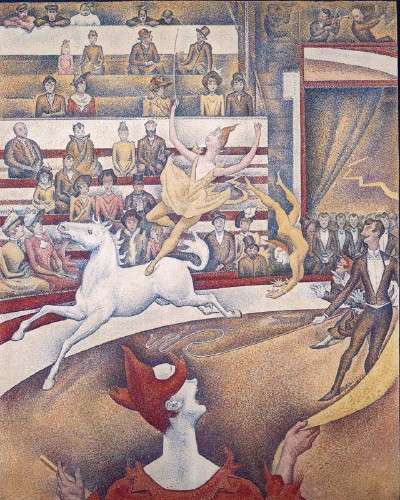
The ten-minute ride the girl took achieved—as far as I was concerned, who wasn’t looking for it, and quite unbeknownst to her, who wasn’t even striving for it—the thing that is sought by performers everywhere, on whatever stage, whether struggling in the tidal currents of Shakespeare or bucking the difficult motion of a horse. I somehow got the idea she was just cadging a ride, improving a shining ten minutes in the diligent way all serious artists seize free moments to hone the blade of their talent and keep themselves in trim. Her brief tour included only elementary postures and tricks, perhaps because they were all she was capable of, perhaps because her warm-up at this hour was unscheduled and the ring was not rigged for a real practice session. She swung herself off and on the horse several times, gripping his mane. She did a few knee-stands—or whatever they are called—dropping to her knees and quickly bouncing back up on her feet again. Most of the time she simply rode in a standing position, well aft on the breast, her hands hanging easily at her sides, her head erect, her straw-colored ponytail lightly brushing her shoulders, the blood of exertion showing faintly through the tan of her skin. Twice she managed a one-foot stance—a sort of ballet pose, with arms outstretched. At one point the neck strap of her bathing suit broke and she went twice around the ring in the classic attitude of a woman making minor repairs to a garment. The fact that she was standing on the back of a horse while doing this invested the matter with a clownish significance that perfectly fitted the spirit of the circus—jocund, yet charming. She just rolled the strap into a neat ball and stowed it inside her bodice while the horse rocked and rolled beneath her in dutiful innocence. The bathing suit proved as self-reliant as its owner and stood up well enough without benefit of a strap.
The richness of the scene was in its plainness, its natural condition—of horse, of ring, of girl, even to the girl’s bare feet that gripped the bare back of her proud and ridiculous mount. The enchantment grew not out of anything that happened or was performed but out of something that seemed to go round and around and around with the girl, attending her, a steady gleam in the shape of a circle—a ring of ambition, of happiness, of youth. (And the positive pleasures of equilibrium under difficulties.) In a week or two all would be changed, all (or almost all) lost: the girl would wear makeup, the horse would wear gold, the ring would be painted, the bark would be clean for the feet of the horse, the girl’s feet would be clean for the slippers she’d wear. All, all would be lost.
As I watched with the others, our jaws adroop, our eyes alight, I became painfully conscious of the element of time. Everything in the hideous old building seemed to take the shape of a circle, conforming to the course of the horse. The rider’s gaze, as she peered straight ahead, seemed to be circular, as though bent by force of circumstance; then time itself began running in circles, so the beginning was where the end was, and the two were the same, and one thing ran into the next and time went round and round and got nowhere. The girl wasn’t so young that she did not know the delicious satisfaction of having a perfectly behaved body and the fun of using it to do a trick most people can’t do, but she was too young to know that time does not really move in a circle at all. I thought: “She will never be as beautiful as this again”—a thought that made me acutely unhappy—and a flash in my mind (which is too much of a busybody to suit me) had projected her twenty-five years ahead, and she was now in the center of the ring, on foot, wearing a conical hat and hi-heeled shoes, the image of the older woman, holding the long rein, caught in the treadmill of an afternoon long in the future. “She is at that enviable moment in life [I thought] when she believes she can go once around the ring, make one complete circuit, and at the end be exactly the same age as at the start. Everything in her movements, her expression, told you that for her the ring of time was perfectly formed, changeless, predictable, without beginning or end, like the ring in which she was traveling at this moment with the horse that wallowed under her. And then I slipped back into my trance and time was circular again—time, passing quietly with the rest of us, so as not to disturb the balance of a performer.
Her ride ended as casually as it had begun. The older woman stopped the horse, and the girl slid to the ground. As she walked toward us to leave, there was a quick, small burst of applause. She smiled broadly, in surprise and pleasure; then her face suddenly regained its gravity and she disappeared through the door.
It has been ambitious and plucky of me to attempt to describe what is indescribable, and I have failed, as I knew I would. But I have discharged my duty to my society; and besides, a writer, like an acrobat, must occasionally try a stunt that is too much for him. At any rate, it is worth reporting that long before the circus comes to town, its most notable performances have already been given. Under the bright lights of the finished show, a performer need only reflect the electric candle power that is directed upon him; but in the dark and dirty old training rings and in the makeshift cages, whatever light is generated, whatever excitement, whatever beauty, must come from original sources—from internal fires of professional hunger and delight, from the exuberance and gravity of youth. It is the difference between planetary light and the combustion of stars.
The Death of the Moth (1942)
VIRGINIA WOOLF
Virginia Woolf (1882–1941) exposed the difficulties of being a woman writer in her essay “A Room of One’s Own.” Her novels experimented with time and narrative, and she is considered a master of the stream-of-consciousness technique. Woolf bat- tled mental illnesses throughout her life, and eventually committed suicide by drowning herself in 1941, a year before this essay was published. As you read, exam- ine the ways she presents images of life and death.
Moths that fly by day are not properly to be called moths; they do not excite that pleasant sense of dark autumn nights and ivy-blossom which the commonest yellow-underwing asleep in the shadow of the curtain never fails to rouse in us. They are hybrid creatures, neither gay like butterflies nor somber like their own species. Nevertheless the present specimen, with his narrow hay-colored wings, fringed with a tassel of the same color, seemed to be content with life. It was a pleasant morning, mid-September, mild, benignant, yet with a keener breath than that of the summer months. The plough was already scoring the field opposite the window, and where the share had been, the earth was pressed flat and gleamed with moisture. Such vigor came rolling in from the fields and the down beyond that it was difficult to keep the eyes strictly turned upon the book. The rooks too were keeping one of their annual festivities; soaring round the tree tops until it looked as if a vast net with thousands of black knots in it had been cast up into the air; which, after a few moments sank slowly down upon the trees until every twig seemed to have a knot at the end of it. Then, suddenly, the net would be thrown into the air again in a wider circle this time, with the utmost clamor and vociferation, as though to be thrown into the air and settle slowly down upon the tree tops were a tremendously exciting experience.
The same energy which inspired the rooks, the ploughmen, the horses, and even, it seemed, the lean bare-backed downs, sent the moth fluttering from side to side of his square of the windowpane. One could not help watching him. One, was, indeed, conscious of a queer feeling of pity for him. The possibilities of plea- sure seemed that morning so enormous and so various that to have only a moth’s part in life, and a day moth’s at that, appeared a hard fate, and his zest in enjoy- ing his meager opportunities to the full, pathetic. He flew vigorously to one cor- ner of his compartment, and, after waiting there a second, flew across to the other. What remained for him but to fly to a third corner and then to a fourth? That was all he could do, in spite of the size of the downs, the width of the sky, the far-off smoke of houses, and the romantic voice, now and then, of a steamer out at sea. What he could do he did. Watching him, it seemed as if a fiber, very thin but pure, of the enormous energy of the world had been thrust into his frail and diminutive body. As often as he crossed the pane, I could fancy that a thread of vital light became visible. He was little or nothing but life.
Yet, because he was so small, and so simple a form of the energy that was rolling in at the open window and driving its way through so many narrow and intricate corridors in my own brain and in those of other human beings, there was something marvelous as well as pathetic about him. It was as if someone had taken a tiny bead of pure life and decking it as lightly as possible with down and feathers, had set it dancing and zigzagging to show us the true nature of life. Thus displayed one could not get over the strangeness of it. One is apt to forget all about life, seeing it humped and bossed and garnished and cumbered so that it has to move with the greatest circumspection and dignity. Again, the thought of all that life might have been had he been born in any other shape caused one to view his simple activities with a kind of pity.
After a time, tired by his dancing apparently, he settled on the window ledge in the sun, and, the queer spectacle being at an end, I forgot about him. Then, looking up, my eye was caught by him. He was trying to resume his dancing, but seemed either so stiff or so awkward that he could only flutter to the bottom of the windowpane; and when he tried to fly across it he failed. Being intent on other matters I watched these futile attempts for a time without thinking, unconsciously waiting for him to resume his flight, as one waits for a machine, that has stopped momentarily, to start again without considering the reason of its failure. After perhaps a seventh attempt he slipped from the wooden ledge and fell,
fluttering his wings, on to his back on the windowsill. The helplessness of his attitude roused me. It flashed upon me that he was in difficulties; he could no longer raise himself; his legs struggled vainly. But, as I stretched out a pencil, meaning to help him to right himself, it came over me that the failure and awkwardness were the approach of death. I laid the pencil down again.
The legs agitated themselves once more. I looked as if for the enemy against which he struggled. I looked out of doors. What had happened there? Presum- ably it was midday, and work in the fields had stopped. Stillness and quiet had re- placed the previous animation. The birds had taken themselves off to feed in the brooks. The horses stood still. Yet the power was there all the same, massed out- side, indifferent, impersonal, not attending to anything in particular. Somehow it was opposed to the little hay-colored moth. It was useless to try to do anything. One could only watch the extraordinary efforts made by those tiny legs against an oncoming doom which could, had it chosen, have submerged an entire city, not merely a city, but masses of human beings; nothing, I knew had any chance against death. Nevertheless after a pause of exhaustion the legs fluttered again. It was superb this last protest, and so frantic that he succeeded at last in righting himself. One’s sympathies, of course, were all on the side of life. Also, when there was nobody to care or to know, this gigantic effort on the part of an insignificant little moth, against a power of such magnitude, to retain what no one else valued or desired to keep, moved one strangely.
Again, somehow, one saw life, a pure bead. I lifted the pencil again, useless though I knew it to be. But even as I did so, the unmistakable tokens of death showed themselves. The body relaxed, and instantly grew stiff. The struggle was over. The insignificant little creature now knew death. As I looked at the dead moth, this minute wayside triumph of so great a force over so mean an antagonist filled me with wonder. Just as life had been strange a few minutes before, so death was now as strange. The moth having righted himself now lay most decently and uncomplainingly composed. O yes, he seemed to say, death is stronger than I am.
QUESTIONS FOR DISCUSSION AND WRITING
1. Conduct a Toulmin analysis of Woolf’s essay. What is her claim? What are her reasons to support that claim? What are the warrants that underlie the claim?
2. What is Woolf’s purpose in writing this essay? To explore? inform? convince? meditate or pray?
3. Why has this essay endured for sixty years? What makes it memorable, lasting?
The Scotty Who Knew Too Much
by James Thurber
Several summers ago there was a Scottie who went to the country for a visit. He decided that all the farm dogs were cowards because they were afraid of a certain animal that had a white stripe down its back.
“You are a pussycat and I can lick you,” the Scottie said to the farm dog who lived in the house where the Scottie was visiting. “I can lick the animal with the white stripe too. Show him to me.”
“Don’t you want to ask any questions about him?” said the farm dog.
“Nah,” said the Scottie. “You ask the questions.”
So the farm dog took the Scottie into the woods and showed him the white-striped animal, and the Scottie closed in on him, growling and slashing. It was all over in a moment, and the Scottie lay on his back.
When he came to, the farm dog said, “What happened?”
“He threw vitriol,” said the Scottie, “but he never laid a glove on me.”
A few days later the farm dog told the Scottie there was another animal all the farm dogs were afraid of.
“Lead me to him,” said the Scottie. “I can lick anything that doesn’t wear horseshoes.”
“Don’t you want to ask any questions about him?” said the farm dog.
“Nah,” said the Scottie. “Just show me where he hangs out.” So the farm dog led him to a place in the woods and pointed out the little animal when he came along.
“The clown,” said the Scottie. “A pushover.” And he closed in, leading with his left and exhibiting some mighty fancy footwork. In less than a second, the Scottie was flat on his back, and when he woke up the farm dog was pulling quills out of him.
“What happened?” said the farm dog.
“He pulled a knife on me,” said the Scottie. “But at least I’ve learned how you fight up here in the country, and now I’m going to beat you up.”
So he closed in on the farm dog, holding his nose with one front paw to ward off the vitriol and covering his eyes with the other front paw to keep out the knives. The Scottie couldn’t see his opponent, and he couldn’t smell his opponent, and he was so badly beaten that he had to be taken back to the city and put in a nursing home.
Moral? It is better to ask some of the questions than to know all the answers.
A Child’s Christmas in Wales
by Dylan Thomas
One Christmas was so much like another, in those years around the sea-town corner now and out of all sound except the distant speaking of the voices I sometimes hear a moment before sleep, that I can never remember whether it snowed for six days and six nights when I was twelve or whether it snowed for twelve days and twelve nights when I was six.
All the Christmases roll down toward the two-tongued sea, like a cold and headlong moon bundling down the sky that was our street; and they stop at the rim of the ice-edged fish-freezing waves, and I plunge my hands in the snow and bring out whatever I can find. In goes my hand into that wool-white bell-tongued ball of holidays resting at the rim of the carol-singing sea, and out come Mrs. Prothero and the firemen.
It was on the afternoon of the Christmas Eve, and I was in Mrs. Prothero’s garden, waiting for cats, with her son Jim. It was snowing. It was always snowing at Christmas. December, in my memory, is white as Lapland, though there were no reindeers. But there were cats. Patient, cold and callous, our hands wrapped in socks, we waited to snowball the cats. Sleek and long as jaguars and horrible-whiskered, spitting and snarling, they would slink and sidle over the white back-garden walls, and the lynx-eyed hunters, Jim and I, fur-capped and moccasined trappers from Hudson Bay, off Mumbles Road, would hurl our deadly snowballs at the green of their eyes. The wise cats never appeared.
We were so still, Eskimo-footed arctic marksmen in the muffling silence of the eternal snows – eternal, ever since Wednesday – that we never heard Mrs. Prothero’s first cry from her igloo at the bottom of the garden. Or, if we heard it at all, it was, to us, like the far-off challenge of our enemy and prey, the neighbor’s polar cat. But soon the voice grew louder.
“Fire!” cried Mrs. Prothero, and she beat the dinner-gong.
And we ran down the garden, with the snowballs in our arms, toward the house; and smoke, indeed, was pouring out of the dining-room, and the gong was bombilating, and Mrs. Prothero was announcing ruin like a town crier in Pompeii. This was better than all the cats in Wales standing on the wall in a row. We bounded into the house, laden with snowballs, and stopped at the open door of the smoke-filled room.
Something was burning all right; perhaps it was Mr. Prothero, who always slept there after midday dinner with a newspaper over his face. But he was standing in the middle of the room, saying, “A fine Christmas!” and smacking at the smoke with a slipper.
“Call the fire brigade,” cried Mrs. Prothero as she beat the gong.
“There won’t be there,” said Mr. Prothero, “it’s Christmas.”
There was no fire to be seen, only clouds of smoke and Mr. Prothero standing in the middle of them, waving his slipper as though he were conducting.
“Do something,” he said. And we threw all our snowballs into the smoke – I think we missed Mr. Prothero – and ran out of the house to the telephone box.
“Let’s call the police as well,” Jim said. “And the ambulance.” “And Ernie Jenkins, he likes fires.”
But we only called the fire brigade, and soon the fire engine came and three tall men in helmets brought a hose into the house and Mr. Prothero got out just in time before they turned it on. Nobody could have had a noisier Christmas Eve. And when the firemen turned off the hose and were standing in the wet, smoky room, Jim’s Aunt, Miss. Prothero, came downstairs and peered in at them. Jim and I waited, very quietly, to hear what she would say to them. She said the right thing, always. She looked at the three tall firemen in their shining helmets, standing among the smoke and cinders and dissolving snowballs, and she said, “Would you like anything to read?”
Years and years ago, when I was a boy, when there were wolves in Wales, and birds the color of red-flannel petticoats whisked past the harp-shaped hills, when we sang and wallowed all night and day in caves that smelt like Sunday afternoons in damp front farmhouse parlors, and we chased, with the jawbones of deacons, the English and the bears, before the motor car, before the wheel, before the duchess-faced horse, when we rode the daft and happy hills bareback, it snowed and it snowed. But here a small boy says: “It snowed last year, too. I made a snowman and my brother knocked it down and I knocked my brother down and then we had tea.”
“But that was not the same snow,” I say. “Our snow was not only shaken from white wash buckets down the sky, it came shawling out of the ground and swam and drifted out of the arms and hands and bodies of the trees; snow grew overnight on the roofs of the houses like a pure and grandfather moss, minutely -ivied the walls and settled on the postman, opening the gate, like a dumb, numb thunder-storm of white, torn Christmas cards.”
“Were there postmen then, too?”
“With sprinkling eyes and wind-cherried noses, on spread, frozen feet they crunched up to the doors and mittened on them manfully. But all that the children could hear was a ringing of bells.”
“You mean that the postman went rat-a-tat-tat and the doors rang?”
“I mean that the bells the children could hear were inside them.”
“I only hear thunder sometimes, never bells.”
“There were church bells, too.”
“Inside them?”
“No, no, no, in the bat-black, snow-white belfries, tugged by bishops and storks. And they rang their tidings over the bandaged town, over the frozen foam of the powder and ice-cream hills, over the crackling sea. It seemed that all the churches boomed for joy under my window; and the weathercocks crew for Christmas, on our fence.”
“Get back to the postmen”
“They were just ordinary postmen, fond of walking and dogs and Christmas and the snow. They knocked on the doors with blue knuckles ….”
“Ours has got a black knocker….”
“And then they stood on the white Welcome mat in the little, drifted porches and huffed and puffed, making ghosts with their breath, and jogged from foot to foot like small boys wanting to go out.”
“And then the presents?”
“And then the Presents, after the Christmas box. And the cold postman, with a rose on his button-nose, tingled down the tea-tray-slithered run of the chilly glinting hill. He went in his ice-bound boots like a man on fishmonger’s slabs.
“He wagged his bag like a frozen camel’s hump, dizzily turned the corner on one foot, and, by God, he was gone.”
“Get back to the Presents.”
“There were the Useful Presents: engulfing mufflers of the old coach days, and mittens made for giant sloths; zebra scarfs of a substance like silky gum that could be tug-o’-warred down to the galoshes; blinding tam-o’-shanters like patchwork tea cozies and bunny-suited busbies and balaclavas for victims of head-shrinking tribes; from aunts who always wore wool next to the skin there were mustached and rasping vests that made you wonder why the aunts had any skin left at all; and once I had a little crocheted nose bag from an aunt now, alas, no longer whinnying with us. And pictureless books in which small boys, though warned with quotations not to, would skate on Farmer Giles’ pond and did and drowned; and books that told me everything about the wasp, except why.”
“Go on the Useless Presents.”
“Bags of moist and many-colored jelly babies and a folded flag and a false nose and a tram-conductor’s cap and a machine that punched tickets and rang a bell; never a catapult; once, by mistake that no one could explain, a little hatchet; and a celluloid duck that made, when you pressed it, a most unducklike sound, a mewing moo that an ambitious cat might make who wished to be a cow; and a painting book in which I could make the grass, the trees, the sea and the animals any colour I pleased, and still the dazzling sky-blue sheep are grazing in the red field under the rainbow-billed and pea-green birds. Hardboileds, toffee, fudge and allsorts, crunches, cracknels, humbugs, glaciers, marzipan, and butterwelsh for the Welsh. And troops of bright tin soldiers who, if they could not fight, could always run. And Snakes-and-Families and Happy Ladders. And Easy Hobbi-Games for Little Engineers, complete with instructions. Oh, easy for Leonardo! And a whistle to make the dogs bark to wake up the old man next door to make him beat on the wall with his stick to shake our picture off the wall. And a packet of cigarettes: you put one in your mouth and you stood at the corner of the street and you waited for hours, in vain, for an old lady to scold you for smoking a cigarette, and then with a smirk you ate it. And then it was breakfast under the balloons.”
“Were there Uncles like in our house?”
“There are always Uncles at Christmas. The same Uncles. And on Christmas morning, with dog-disturbing whistle and sugar fags, I would scour the swatched town for the news of the little world, and find always a dead bird by the Post Office or by the white deserted swings; perhaps a robin, all but one of his fires out. Men and women wading or scooping back from chapel, with taproom noses and wind-bussed cheeks, all albinos, huddles their stiff black jarring feathers against the irreligious snow. Mistletoe hung from the gas brackets in all the front parlors; there was sherry and walnuts and bottled beer and crackers by the dessertspoons; and cats in their fur-abouts watched the fires; and the high-heaped fire spat, all ready for the chestnuts and the mulling pokers. Some few large men sat in the front parlors, without their collars, Uncles almost certainly, trying their new cigars, holding them out judiciously at arms’ length, returning them to their mouths, coughing, then holding them out again as though waiting for the explosion; and some few small aunts, not wanted in the kitchen, nor anywhere else for that matter, sat on the very edge of their chairs, poised and brittle, afraid to break, like faded cups and saucers.”
Not many those mornings trod the piling streets: an old man always, fawn-bowlered, yellow-gloved and, at this time of year, with spats of snow, would take his constitutional to the white bowling green and back, as he would take it wet or fire on Christmas Day or Doomsday; sometimes two hale young men, with big pipes blazing, no overcoats and wind blown scarfs, would trudge, unspeaking, down to the forlorn sea, to work up an appetite, to blow away the fumes, who knows, to walk into the waves until nothing of them was left but the two furling smoke clouds of their inextinguishable briars. Then I would be slap-dashing home, the gravy smell of the dinners of others, the bird smell, the brandy, the pudding and mince, coiling up to my nostrils, when out of a snow-clogged side lane would come a boy the spit of myself, with a pink-tipped cigarette and the violet past of a black eye, cocky as a bullfinch, leering all to himself.
I hated him on sight and sound, and would be about to put my dog whistle to my lips and blow him off the face of Christmas when suddenly he, with a violet wink, put his whistle to his lips and blew so stridently, so high, so exquisitely loud, that gobbling faces, their cheeks bulged with goose, would press against their tinsled windows, the whole length of the white echoing street. For dinner we had turkey and blazing pudding, and after dinner the Uncles sat in front of the fire, loosened all buttons, put their large moist hands over their watch chains, groaned a little and slept. Mothers, aunts and sisters scuttled to and fro, bearing tureens. Auntie Bessie, who had already been frightened, twice, by a clock-work mouse, whimpered at the sideboard and had some elderberry wine. The dog was sick. Auntie Dosie had to have three aspirins, but Auntie Hannah, who liked port, stood in the middle of the snowbound back yard, singing like a big-bosomed thrush. I would blow up balloons to see how big they would blow up to; and, when they burst, which they all did, the Uncles jumped and rumbled. In the rich and heavy afternoon, the Uncles breathing like dolphins and the snow descending, I would sit among festoons and Chinese lanterns and nibble dates and try to make a model man-o’-war, following the Instructions for Little Engineers, and produce what might be mistaken for a sea-going tramcar.
Or I would go out, my bright new boots squeaking, into the white world, on to the seaward hill, to call on Jim and Dan and Jack and to pad through the still streets, leaving huge footprints on the hidden pavements.
“I bet people will think there’s been hippos.”
“What would you do if you saw a hippo coming down our street?”
“I’d go like this, bang! I’d throw him over the railings and roll him down the hill and then I’d tickle him under the ear and he’d wag his tail.”
“What would you do if you saw two hippos?”
Iron-flanked and bellowing he-hippos clanked and battered through the scudding snow toward us as we passed Mr. Daniel’s house.
“Let’s post Mr. Daniel a snow-ball through his letter box.”
“Let’s write things in the snow.”
“Let’s write, ‘Mr. Daniel looks like a spaniel’ all over his lawn.”
Or we walked on the white shore. “Can the fishes see it’s snowing?”
The silent one-clouded heavens drifted on to the sea. Now we were snow-blind travelers lost on the north hills, and vast dewlapped dogs, with flasks round their necks, ambled and shambled up to us, baying “Excelsior.” We returned home through the poor streets where only a few children fumbled with bare red fingers in the wheel-rutted snow and cat-called after us, their voices fading away, as we trudged uphill, into the cries of the dock birds and the hooting of ships out in the whirling bay. And then, at tea the recovered Uncles would be jolly; and the ice cake loomed in the center of the table like a marble grave. Auntie Hannah laced her tea with rum, because it was only once a year.
Bring out the tall tales now that we told by the fire as the gaslight bubbled like a diver. Ghosts whooed like owls in the long nights when I dared not look over my shoulder; animals lurked in the cubbyhole under the stairs and the gas meter ticked. And I remember that we went singing carols once, when there wasn’t the shaving of a moon to light the flying streets. At the end of a long road was a drive that led to a large house, and we stumbled up the darkness of the drive that night, each one of us afraid, each one holding a stone in his hand in case, and all of us too brave to say a word. The wind through the trees made noises as of old and unpleasant and maybe webfooted men wheezing in caves. We reached the black bulk of the house. “What shall we give them? Hark the Herald?”
“No,” Jack said, “Good King Wencelas. I’ll count three.” One, two three, and we began to sing, our voices high and seemingly distant in the snow-felted darkness round the house that was occupied by nobody we knew. We stood close together, near the dark door. Good King Wencelas looked out On the Feast of Stephen … And then a small, dry voice, like the voice of someone who has not spoken for a long time, joined our singing: a small, dry, eggshell voice from the other side of the door: a small dry voice through the keyhole. And when we stopped running we were outside our house; the front room was lovely; balloons floated under the hot-water-bottle-gulping gas; everything was good again and shone over the town.
“Perhaps it was a ghost,” Jim said. ”
Perhaps it was trolls,” Dan said, who was always reading.
“Let’s go in and see if there’s any jelly left,” Jack said. And we did that.
Always on Christmas night there was music. An uncle played the fiddle, a cousin sang “Cherry Ripe,” and another uncle sang “Drake’s Drum.” It was very warm in the little house. Auntie Hannah, who had got on to the parsnip wine, sang a song about Bleeding Hearts and Death, and then another in which she said her heart was like a Bird’s Nest; and then everybody laughed again; and then I went to bed. Looking through my bedroom window, out into the moonlight and the unending smoke-colored snow, I could see the lights in the windows of all the other houses on our hill and hear the music rising from them up the long, steady falling night. I turned the gas down, I got into bed. I said some words to the close and holy darkness, and then I slept.
Advice to Youth
by Mark Twain (1835-1910)
Being told I would be expected to talk here, I inquired what sort of talk I ought to make. They said it should be something suitable to youth–something didactic, instructive, or something in the nature of good advice. Very well. I have a few things in my mind which I have often longed to say for the instruction of the young; for it is in one’s tender early years that such things will best take root and be most enduring and most valuable. First, then. I will say to you my young friends–and I say it beseechingly, urgingly–Always obey your parents, when they are present. This is the best policy in the long run, because if you don’t, they will make you. Most parents think they know better than you do, and you can generally make more by humoring that superstition than you can by acting on your own better judgment.
Be respectful to your superiors, if you have any, also to strangers, and sometimes to others. If a person offend you, and you are in doubt as to whether it was intentional or not, do not resort to extreme measures; simply watch your chance and hit him with a brick. That will be sufficient. If you shall find that he had not intended any offense, come out frankly and confess yourself in the wrong when you struck him; acknowledge it like a man and say you didn’t mean to. Yes, always avoid violence; in this age of charity and kindliness, the time has gone by for such things. Leave dynamite to the low and unrefined.
Go to bed early, get up early–this is wise. Some authorities say get up with the sun; some say get up with one thing, others with another. But a lark is really the best thing to get up with. It gives you a splendid reputation with everybody to know that you get up with the lark; and if you get the right kind of lark, and work at him right, you can easily train him to get up at half past nine, every time–it’s no trick at all.
Now as to the matter of lying. You want to be very careful about lying; otherwise you are nearly sure to get caught. Once caught, you can never again be in the eyes to the good and the pure, what you were before. Many a young person has injured himself permanently through a single clumsy and ill finished lie, the result of carelessness born of incomplete training. Some authorities hold that the young ought not to lie at all. That of course, is putting it rather stronger than necessary; still while I cannot go quite so far as that, I do maintain, and I believe I am right, that the young ought to be temperate in the use of this great art until practice and experience shall give them that confidence, elegance, and precision which alone can make the accomplishment graceful and profitable. Patience, diligence, painstaking attention to detail–these are requirements; these in time, will make the student perfect; upon these only, may he rely as the sure foundation for future eminence. Think what tedious years of study, thought, practice, experience, went to the equipment of that peerless old master who was able to impose upon the whole world the lofty and sounding maxim that “Truth is mighty and will prevail”–the most majestic compound fracture of fact which any of woman born has yet achieved. For the history of our race, and each individual’s experience, are sewn thick with evidences that a truth is not hard to kill, and that a lie well told is immortal. There is in Boston a monument of the man who discovered anesthesia; many people are aware, in these latter days, that that man didn’t discover it at all, but stole the discovery from another man. Is this truth mighty, and will it prevail? Ah no, my hearers, the monument is made of hardy material, but the lie it tells will outlast it a million years. An awkward, feeble, leaky lie is a thing which you ought to make it your unceasing study to avoid; such a lie as that has no more real permanence than an average truth. Why, you might as well tell the truth at once and be done with it. A feeble, stupid, preposterous lie will not live two years–except it be a slander upon somebody. It is indestructible, then of course, but that is no merit of yours. A final word: begin your practice of this gracious and beautiful art early–begin now. If I had begun earlier, I could have learned how.
Never handle firearms carelessly. The sorrow and suffering that have been caused through the innocent but heedless handling of firearms by the young! Only four days ago, right in the next farm house to the one where I am spending the summer, a grandmother, old and gray and sweet, one of the loveliest spirits in the land, was sitting at her work, when her young grandson crept in and got down an old, battered, rusty gun which had not been touched for many years and was supposed not to be loaded, and pointed it at her, laughing and threatening to shoot. In her fright she ran screaming and pleading toward the door on the other side of the room; but as she passed him he placed the gun almost against her very breast and pulled the trigger! He had supposed it was not loaded. And he was right–it wasn’t. So there wasn’t any harm done. It is the only case of that kind I ever heard of. Therefore, just the same, don’t you meddle with old unloaded firearms; they are the most deadly and unerring things that have ever been created by man. You don’t have to take any pains at all with them; you don’t have to have a rest, you don’t have to have any sights on the gun, you don’t have to take aim, even. No, you just pick out a relative and bang away, and you are sure to get him. A youth who can’t hit a cathedral at thirty yards with a Gatling gun in three quarters of an hour, can take up an old empty musket and bag his grandmother every time, at a hundred. Think what Waterloo would have been if one of the armies had been boys armed with old muskets supposed not to be loaded, and the other army had been composed of their female relations. The very thought of it make one shudder.
There are many sorts of books; but good ones are the sort for the young to read. Remember that. They are a great, an inestimable, and unspeakable means of improvement. Therefore be careful in your selection, my young friends; be very careful; confine yourselves exclusively to Robertson’s Sermons, Baxter’s Saint’s Rest, The Innocents Abroad, and works of that kind.
But I have said enough. I hope you will treasure up the instructions which I have given you, and make them a guide to your feet and a light to your understanding. Build your character thoughtfully and painstakingly upon these precepts, and by and by, when you have got it built, you will be surprised and gratified to see how nicely and sharply it resembles everybody else’s.
(1882)
The first African American to earn a Ph.D. at Harvard, W.E.B. Du Bois went on to become a professor of economics and history at Atlanta University and the University of Pennsylvania. He was co-founder of the National Association for the Advancement of Colored People (the NAACP) and for over two decades edited its magazine, Crisis.
This moving recollection of the birth and death of his son originally appeared as Chapter 11 of Du Bois’s revolutionary essay collection, The Souls of Black Folk, published in 1903.
Of the Passing of the First-Born
by W.E.B. Du Bois
0 sister, sister, thy first-begotten,
The hands that cling and the feet that follow,
The voice of the child’s blood crying yet,
Who hath remembered me? who hath forgotten?
Thou hast forgotten, O summer swallow,
But the world shall end when I forget.
–Swinburne
“Unto you a child is born,” sang the bit of yellow paper that fluttered into my room one brown October morning. Then the fear of fatherhood mingled wildly with the joy of creation; I wondered how it looked and how it felt–what were its eyes, and how its hair curled and crumpled itself. And I thought in awe of her–she who had slept with Death to tear a man-child from underneath her heart, while I was unconsciously wandering. I fled to my wife and child, repeating the while to myself half wonderingly, “Wife and child? Wife and child?”–fled fast and faster than boat and steam-car, and yet must ever impatiently await them; away from the hard-voiced city, away from the flickering sea into my own Berkshire Hills that sit all sadly guarding the gates of Massachusetts.
Up the stairs I ran to the wan mother and whimpering babe, to the sanctuary on whose altar a life at my bidding had offered itself to win a life, and won. What is this tiny formless thing, this newborn wail from an unknown world–all head and voice? I handle it curiously, and watch perplexed its winking, breathing, and sneezing. I did not love it then; it seemed a ludicrous thing to love; but her I loved, my girl-mother, she whom now I saw unfolding like the glory of the morning–the transfigured woman.
Through her I came to love the wee thing, as it grew and waxed strong; as its little soul unfolded itself in twitter and cry and half-formed word, and as its eyes caught the gleam and flash of life. How beautiful he was, with his olive-tinted flesh and dark gold ringlets, his eyes of mingled blue and brown, his perfect little limbs, and the soft voluptuous roll which the blood of Africa had moulded into his features! I held him in my arms, after we had sped far away to our Southern home–held him, and glanced at the hot red soil of Georgia and the breathless city of a hundred hills, and felt a vague unrest. Why was his hair tinted with gold? An evil omen was golden hair in my life. Why had not the brown of his eyes crushed out and killed the blue?–for brown were his father’s eyes, and his father’s father’s. And thus in the Land of the Color-line I saw, as it fell across my baby, the shadow of the Veil.
Within the Veil was he born, said I; and there within shall he live–a Negro and a Negro’s son. Holding in that little head–ah, bitterly!–the unbowed pride of a hunted race, clinging with that tiny dimpled hand–ah, wearily!–to a hope not hopeless but unhopeful, and seeing with those bright wondering eyes that peer into my soul a land whose freedom is to us a mockery and whose liberty a lie. I saw the shadow of the Veil as it passed over my baby, I saw the cold city towering above the blood-red land. I held my face beside his little cheek, showed him the star-children and the twinkling lights as they began to flash, and stilled with an even-song the unvoiced terror of my life.
So sturdy and masterful he grew, so filled with bubbling life, so tremulous with the unspoken wisdom of a life but eighteen months distant from the All-life–we were not far from worshiping this revelation of the divine, my wife and I. Her own life builded and moulded itself upon the child; he tinged her every dream and idealized her every effort. No hands but hers must touch and garnish those little limbs; no dress or frill must touch them that had not wearied her fingers; no voice but hers could coax him off to Dreamland, and she and he together spoke some soft and unknown tongue and in it held communion. I too mused above his little white bed; saw the strength of my own arm stretched onward through the ages through the newer strength of his; saw the dream of my black fathers stagger a step onward in the wild phantasm of the world; heard in his baby voice the voice of the Prophet that was to rise within the Veil.
And so we dreamed and loved and planned by fall and winter, and the full flush of the long Southern spring, till the hot winds rolled from the fetid Gulf, till the roses shivered and the still stern sun quivered its awful light over the hills of Atlanta. And then one night the little feet pattered wearily to the wee white bed, and the tiny hands trembled; and a warm flushed face tossed on the pillow, and we knew baby was sick. Ten days he lay there–a swift week and three endless days, wasting, wasting away. Cheerily the mother nursed him the first days, and laughed into the little eyes that smiled again. Tenderly then she hovered round him, till the smile fled away and Fear crouched beside the little bed.
Then the day ended not, and night was a dreamless terror, and joy and sleep slipped away. I hear now that Voice at midnight calling me from dull and dreamless trance–crying, “The Shadow of Death! The Shadow of Death!” Out into the starlight I crept, to rouse the gray physician–the Shadow of Death, the Shadow of Death. The hours trembled on; the night listened; the ghastly dawn glided like a tired thing across the lamplight. Then we two alone looked upon the child as he turned toward us with great eyes, and stretched his string-like hands–the Shadow of Death! And we spoke no word, and turned away.
He died at eventide, when the sun lay like a brooding sorrow above the western hills, veiling its face; when the winds spoke not, and the trees, the great, green trees he loved, stood motionless. I saw his breath beat quicker and quicker, pause, and then his little soul leapt like a star that travels in the night and left a world of darkness in its train. The day changed not; the same tall trees peeped in at the windows, the same green grass glinted in the setting sun. Only in the chamber of death writhed the world’s most piteous thing–a childless mother.
I shirk not. I long for work. I pant for a life full of striving. I am no coward, to shrink before the rugged rush of the storm, nor even quail before the awful shadow of the Veil. But hearken, O Death! Is not this my life hard enough–is not that dull land that stretches its sneering web about me cold enough–is not all the world beyond these four little walls pitiless enough, but that thou must needs enter here–thou, O Death? About my head the thundering storm beat like a heartless voice, and the crazy forest pulsed with the curses of the weak; but what cared I, within my home beside my wife and baby boy? Wast thou so jealous of one little coign of happiness that thou must needs enter there–thou, O Death?
A perfect life was his, all joy and love, with tears to make it brighter–sweet as a summer’s day beside the Housatonic. The world loved him; the women kissed his curls, the men looked gravely into his wonderful eyes, and the children hovered and fluttered about him. I can see him now, changing like the sky from sparkling laughter to darkening frowns, and then to wondering thoughtfulness as he watched the world. He knew no color-line, poor dear–and the Veil, though it shadowed him, had not yet darkened half his sun. He loved the white matron, he loved his black nurse; and in his little world walked souls alone, uncolored and unclothed. I–yea, all men–are larger and purer by the infinite breadth of that one little life. She who in simple clearness of vision sees beyond the stars said when he had flown, “He will be happy There; he ever loved beautiful things.” And I, far more ignorant, and blind by the web of mine own weaving, sit alone winding words and muttering, “If still he be, and he be There, and there be a There, let him be happy, O Fate!”
Blithe was the morning of his burial, with bird and song and sweet-smelling flowers. The trees whispered to the grass, but the children sat with hushed faces. And yet it seemed a ghastly unreal day–the wraith of Life. We seemed to rumble down an unknown street behind a little white bundle of posies, with the shadow of a song in our ears. The busy city dinned about us; they did not say much, those pale-faced hurrying men and women; they did not say much–they only glanced and said, “Niggers!”
We could not lay him in the ground there in Georgia, for the earth there is strangely red; so we bore him away to the northward, with his flowers and his little folded hands. In vain, in vain!–for where, O God! beneath thy broad blue sky shall my dark baby rest in peace–where Reverence dwells, and Goodness, and a Freedom that is free?
A11 that day and all that night there sat an awful gladness in my heart–nay, blame me not if I see the world thus darkly through the Veil–and my soul whispers ever to me, saying, “Not dead, not dead, but escaped; not bond, but free.” No bitter meanness now shall sicken his baby heart till it die a living death, no taunt shall madden his happy boyhood. Fool that I was to think or wish that this little soul should grow choked and deformed within the Veil! I might have known that yonder deep unworldly look that ever and anon floated past his eyes was peering far beyond this narrow Now. In the poise of his little curl-crowned head did there not sit all that wild pride of being which his father had hardly crushed in his own heart? For what, forsooth, shall a Negro want with pride amid the studied humiliations of fifty million fellows? Well sped, my boy, before the world had dubbed your ambition insolence, had held your ideals unattainable, and taught you to cringe and bow. Better far this nameless void that stops my life than a sea of sorrow for you.
Idle words; he might have borne his burden more bravely than we–aye, and found it lighter too, some day; for surely, surely this is not the end. Surely there shall yet dawn some mighty morning to lift the Veil and set the prisoned free. Not for me–I shall die in my bonds–but for fresh young souls who have not known the night and waken to the morning; a morning when men ask of the workman, not “Is he white?” but “Can he work?” When men ask artists, not “Are they black?” but “Do they know?” Some morning this may be, long, long years to come. But now there wails, on that dark shore within the Veil, the same deep voice, Thou shalt forego! And all have I foregone at that command, and with small complaint–all save that fair young form that lies so coldly wed with death in the nest I had builded.
If one must have gone, why not I? Why may I not rest me from this restlessness and sleep from this wide waking? Was not the world’s alembic, Time, in his young hands, and is not my time waning? Are there so many workers in the vineyard that the fair promise of this little body could lightly be tossed away? The wretched of my race that line the alleys of the nation sit fatherless and unmothered; but Love sat beside his cradle, and in his ear Wisdom waited to speak. Perhaps now he knows the All-love, and needs not to be wise. Sleep, then, child–sleep till I sleep and waken to a baby voice and the ceaseless patter of little feet–above the Veil.
I Have a Dream
by Martin Luther King, Jr.
I am happy to join with you today in what will go down in history as the greatest demonstration for freedom in the history of our nation.
Five score years ago, a great American, in whose symbolic shadow we stand today, signed the Emancipation Proclamation. This momentous decree came as a great beacon light of hope to millions of Negro slaves who had been seared in the flames of withering injustice. It came as a joyous daybreak to end the long night of their captivity.
But one hundred years later, the Negro still is not free. One hundred years later, the life of the Negro is still sadly crippled by the manacles of segregation and the chains of discrimination. One hundred years later, the Negro lives on a lonely island of poverty in the midst of a vast ocean of material prosperity. One hundred years later, the Negro is still languishing in the corners of American society and finds himself an exile in his own land. And so we’ve come here today to dramatize a shameful condition.
In a sense we’ve come to our nation’s capital to cash a check. When the architects of our republic wrote the magnificent words of the Constitution and the Declaration of Independence, they were signing a promissory note to which every American was to fall heir. This note was a promise that all men, yes, black men as well as white men, would be guaranteed the “unalienable Rights” of “Life, Liberty and the pursuit of Happiness.” It is obvious today that America has defaulted on this promissory note, insofar as her citizens of color are concerned. Instead of honoring this sacred obligation, America has given the Negro people a bad check, a check which has come back marked “insufficient funds.”
But we refuse to believe that the bank of justice is bankrupt. We refuse to believe that there are insufficient funds in the great vaults of opportunity of this nation. And so, we’ve come to cash this check, a check that will give us upon demand the riches of freedom and the security of justice.
We have also come to this hallowed spot to remind America of the fierce urgency of now. This is no time to engage in the luxury of cooling off or to take the tranquilizing drug of gradualism. Now is the time to make real the promises of democracy. Now is the time to rise from the dark and desolate valley of segregation to the sunlit path of racial justice. Now is the time to lift our nation from the quicksands of racial injustice to the solid rock of brotherhood. Now is the time to make justice a reality for all of God’s children.
It would be fatal for the nation to overlook the urgency of the moment. This sweltering summer of the Negro’s legitimate discontent will not pass until there is an invigorating autumn of freedom and equality. 1963 is not an end, but a beginning. And those who hope that the Negro needed to blow off steam and will now be content will have a rude awakening if the nation returns to business as usual. And there will be neither rest nor tranquility in America until the Negro is granted his citizenship rights. The whirlwinds of revolt will continue to shake the foundations of our nation until the bright day of justice emerges.
But there is something that I must say to my people, who stand on the warm threshold which leads into the palace of justice. In the process of gaining our rightful place, we must not be guilty of wrongful deeds. Let us not seek to satisfy our thirst for freedom by drinking from the cup of bitterness and hatred. We must forever conduct our struggle on the high plane of dignity and discipline. We must not allow our creative protest to degenerate into physical violence. Again and again, we must rise to the majestic heights of meeting physical force with soul force.
The marvelous new militancy which has engulfed the Negro community must not lead us to a distrust of all white people, for many of our white brothers, as evidenced by their presence here today, have come to realize that their destiny is tied up with our destiny. And they have come to realize that their freedom is inextricably bound to our freedom. We cannot walk alone.
And as we walk, we must make the pledge that we shall always march ahead. We cannot turn back. There are those who are asking the devotees of civil rights, “When will you be satisfied?” We can never be satisfied as long as the Negro is the victim of the unspeakable horrors of police brutality. We can never be satisfied as long as our bodies, heavy with the fatigue of travel, cannot gain lodging in the motels of the highways and the hotels of the cities. We cannot be satisfied as long as the Negro’s basic mobility is from a smaller ghetto to a larger one. We can never be satisfied as long as our children are stripped of their self-hood and robbed of their dignity by a sign stating “For Whites Only.” We cannot be satisfied as long as a Negro in Mississippi cannot vote and a Negro in New York believes he has nothing for which to vote. No, no, we are not satisfied, and we will not be satisfied until justice rolls down like waters, and righteousness like a mighty stream.
I am not unmindful that some of you have come here out of great trials and tribulations. Some of you have come fresh from narrow jail cells. And some of you have come from areas where your quest — quest for freedom left you battered by the storms of persecution and staggered by the winds of police brutality. You have been the veterans of creative suffering. Continue to work with the faith that unearned suffering is redemptive. Go back to Mississippi, go back to Alabama, go back to South Carolina, go back to Georgia, go back to Louisiana, go back to the slums and ghettos of our northern cities, knowing that somehow this situation can and will be changed.
Let us not wallow in the valley of despair, I say to you today, my friends. And so even though we face the difficulties of today and tomorrow, I still have a dream. It is a dream deeply rooted in the American dream.
I have a dream that one day this nation will rise up and live out the true meaning of its creed: “We hold these truths to be self-evident, that all men are created equal.”
I have a dream that one day on the red hills of Georgia, the sons of former slaves and the sons of former slave owners will be able to sit down together at the table of brotherhood.
I have a dream that one day even the state of Mississippi, a state sweltering with the heat of injustice, sweltering with the heat of oppression, will be transformed into an oasis of freedom and justice.
I have a dream that my four little children will one day live in a nation where they will not be judged by the color of their skin but by the content of their character.
I have a dream today!
I have a dream that one day, down in Alabama, with its vicious racists, with its governor having his lips dripping with the words of “interposition” and “nullification”–one day right there in Alabama little black boys and black girls will be able to join hands with little white boys and white girls as sisters and brothers.
I have a dream today!
I have a dream that one day every valley shall be exalted, and every hill and mountain shall be made low, the rough places will be made plain, and the crooked places will be made straight; and the glory of the Lord shall be revealed and all flesh shall see it together.
This is our hope, and this is the faith that I go back to the South with.
With this faith, we will be able to hew out of the mountain of despair a stone of hope. With this faith, we will be able to transform the jangling discords of our nation into a beautiful symphony of brotherhood. With this faith, we will be able to work together, to pray together, to struggle together, to go to jail together, to stand up for freedom together, knowing that we will be free one day.
And this will be the day–this will be the day when all of God’s children will be able to sing with new meaning:
My country ’tis of thee,
Sweet land of liberty,
Of thee I sing.
Land where my fathers died,
Land of the Pilgrim’s pride,
From every mountainside,
Let freedom ring!
And if America is to be a great nation, this must become true. And so let freedom ring from the prodigious hilltops of New Hampshire. Let freedom ring from the mighty mountains of New York. Let freedom ring from the heightening Alleghenies of Pennsylvania!
Let freedom ring from the snow-capped Rockies of Colorado!
Let freedom ring from the curvaceous slopes of California!
But not only that. Let freedom ring from Stone Mountain of Georgia!
Let freedom ring from Lookout Mountain of Tennessee!
Let freedom ring from every hill and molehill of Mississippi. From every mountainside, let freedom ring.
And when this happens, when we allow freedom to ring, when we let it ring from every village and every hamlet, from every state and every city, we will be able to speed up that day when all of God’s children, black men and white men, Jews and Gentiles, Protestants and Catholics, will be able to join hands and sing in the words of the old Negro spiritual, “Free at last! Free at last! Thank God Almighty, we are free at last!”
Thinking as a Hobby
by William Golding
While I was still a boy, I came to the conclusion that there were three grades of thinking;and since I was later to claim thinking as my hobby, I came to an even stranger conclusion – namely, that I myself could not think at all.
I must have been an unsatisfactory child for grownups to deal with. I remember how incomprehensible they appeared to me at first, but not, of course, how I appeared to them. It was the headmaster of my grammar school who first brought the subject of thinkingbefore me – though neither in the way, nor with the result he intended. He had some statuettes in his study. They stood on a high cupboard behind his desk. One was a lady wearing nothing but a bath towel. She seemed frozen in an eternal panic lest the bath towel slip down any farther, and since she had no arms, she was in an unfortunate position to pull the towel up again. Next to her, crouched the statuette of a leopard, ready to spring down at the top drawer of a filing cabinet labeled A-AH. My innocence interpreted this as the victim’s last, despairing cry.
Beyond the leopard was a naked, muscular gentleman, who sat, looking down, with his chin on his fist and his elbow on his knee. He seemed utterly miserable. Some time later, I learned about these statuettes. The headmaster had placed them where they would face delinquent children, because they symbolized to him the whole of life. The naked lady was the Venus of Milo. She was Love. She was not worried about the towel. She was just busy being beautiful. The leopard was Nature, and he was being natural. The naked, muscular gentleman was not miserable. He was Rodin’s Thinker, an image of pure thought.
It is easy to buy small plaster models of what you think life is like. I had better explain that I was a frequent visitor to the headmaster’s study, because of the latest thing I had done or left undone. As we now say, I was not integrated. I was, if anything, disintegrated; and I was puzzled. Grownups never made sense. Whenever I found myself in a penal position before the headmaster’s desk, with the statuettes glimmering whitely above him, I would sink my head, clasp my hands behind my back, and writhe one shoe over the other. The headmaster would look opaquely at me through flashing spectacles. “What are we going to do with you?”
Well, what were they going to do with me? I would writhe my shoe some more and stare down at the worn rug. “Look up, boy! Can’t you look up?” Then I would look at the cupboard, where the naked lady was frozen in her panic and the muscular gentleman contemplated the hindquarters of the leopard in endless gloom. I had nothing to say to the headmaster. His spectacles caught the light so that you could see nothing human behind them. There was no possibility of communication.
“Don’t you ever think at all?” No, I didn’t think, wasn’t thinking, couldn’t think – I was simply waiting in anguish for the interview to stop. “Then you’d better learn – hadn’t you?” On one occasion the headmaster leaped to his feet, reached up and plonked Rodin’s masterpiece on the desk before me. “That’s what a man looks like when he’s really thinking.” I surveyed the gentleman without interest or comprehension. “Go back to your class. “Clearly there was something missing in me. Nature had endowed the rest of the human race with a sixth sense and left me out. This must be so, I mused, on my way back to the class, since whether I had broken a window, or failed to remember Boyle’s Law, or been late for school, my teachers produced me one, adult answer: “Why can’t you think?” As I saw the case, I had broken the window because I had tried to hit Jack Arney with a cricket ball and missed him; I could not remember Boyle’s Law because I had never bothered to learn it; and I was late for school because I preferred looking over the bridge into the river. In fact, I was wicked. Were my teachers, perhaps, so good that they could not understand the depths of my depravity? Were they clear, untormented people who could direct their every action by this mysterious business of thinking? The whole thing was incomprehensible. In my earlier years, I found even the statuette of the Thinker confusing. I did not believe any of my teachers were naked, ever. Like someone born deaf, but bitterly determined to find out about sound,
I watched my teachers to find out about thought. There was Mr. Houghton. He was always telling me to think. With a modest satisfaction, he would tell that he had thought a bit himself. Then why did he spend so much time drinking? Or was there more sense in drinking than there appeared to be? But if not, and if drinking were in fact ruinous to health – and Mr. Houghton was ruined, there was no doubt about that – why was he always talking about the clean life and the virtues of fresh air? He would spread his arms wide with the action of a man who habitually spent his time striding along mountain ridges. “Open air does me good, boys – I know it!” Sometimes, exalted by his own oratory, he would leap from his desk and hustle us outside into a hideous wind.
“Now, boys! Deep breaths! Feel it right down inside you – huge droughts of God’s good air!” He would stand before us, rejoicing in his perfect health, an open-air man. He would put his hands on his waist and take a tremendous breath. You could hear the wind trapped in the cavern of his chest and struggling with all the unnatural impediments. His body would reel with shock and his ruined face go white at the unaccustomed visitation. He would stagger back to his desk and collapse there, useless for the rest of the morning. Mr. Houghton was given to high-minded monologues about the good life, sexless and full of duty. Yet in the middle of one of these monologues, if a girl passed the window, tapping along on her neat little feet, he would interrupt his discourse, his neck would turn of itself and he would watch her out of sight. In this instance, he seemed to me ruled not by thought but by an invisible and irresistible spring in his nape. His neck was an object of great interest to me. Normally it bulged a bit over his collar. But Mr. Houghton had fought in the First World War alongside both Americans and French, and had come – by who knows what illogic? – to a settled detestation of both countries. If either country happened to be prominent in current affairs, no argument could make Mr. Houghton think well of it. He would bang the desk, his neck would bulge still further and go red. “You can say what you like,” he would cry, “but I’ve thought about this – and I know what I think!” Mr. Houghton thought with his neck.
There was Miss. Parsons. She assured us that her dearest wish was our welfare, but I knew even then, with the mysterious clairvoyance of childhood, that what she wanted most was the husband she never got. There was Mr. Hands – and so on. I have dealt at length with my teachers because this was my introduction to the nature of what is commonly called thought. Through them I discovered that thought is often full of unconscious prejudice, ignorance, and hypocrisy. It will lecture on disinterested purity while its neck is being remorselessly twisted toward a skirt. Technically, it is about as proficient as most businessmen’s golf, as honest as most politician’s intentions, or – to come near my own preoccupation – as coherent as most books that get written. It is what I came to call grade-three thinking, though more properly, it is feeling, rather than thought. True, often there is a kind of innocence in prejudices, but in those days I viewed grade-three thinking with an intolerant contempt and an incautious mockery. I delighted to confront a pious lady who hated the Germans with the proposition that we should love our enemies. She taught me a great truth in dealing with grade-three thinkers; because of her, I no longer dismiss lightly a mental process which for nine-tenths of the population is the nearest they will ever get to thought. They have immense solidarity. We had better respect them, for we are outnumbered and surrounded. A crowd of grade-three thinkers, all shouting the same thing, all warming their hands at the fire of their own prejudices, will not thank you for pointing out the contradictions in their beliefs.
Man is a gregarious animal, and enjoys agreement as cows will graze all the same way on the side of a hill. Grade-two thinking is the detection of contradictions. I reached grade two when I trapped the poor, pious lady. Grade-two thinkers do not stampede easily, though often they fall into the other fault and lag behind. Grade-two thinking is a withdrawal, with eyes and ears open. It became my hobby and brought satisfaction and loneliness in either hand. For grade-two thinking destroys without having the power to create. It set me watching the crowds cheering His Majesty the King and asking myself what all the fuss was about, without giving me anything positive to put in the place of that heady patriotism. But there were compensations. To hear people justify their habit of hunting foxes and tearing them to pieces by claiming that the foxes like it. To her our Prime Minister talk about the great benefit we conferred on India by jailing people like Pandit Nehru and Gandhi. To hear American politicians talk about peace in one sentence and refuse to join the League of Nations in the next. Yes, there were moments of delight. But I was growing toward adolescence and had to admit that Mr. Houghton was not the only one with an irresistible spring in his neck. I, too, felt the compulsive hand of nature and began to find that pointing out contradiction could be costly as well as fun.
There was Ruth, for example, a serious and attractive girl. I was an atheist at the time. Grade-two thinking is a menace to religion and knocks down sects like skittles. I put myself in a position to be converted by her with an hypocrisy worthy of grade three. She was a Methodist – or at least, her parents were, and Ruth had to follow suit. But, alas, instead of relying on the Holy Spirit to convert me, Ruth was foolish enough to open her pretty mouth in argument. She claimed that the Bible (King James Version) was literally inspired. I countered by saying that the Catholics believed in the literal inspiration of Saint Jerome’s Vulgate, and the two books were different. Argument flagged. At last she remarked that there were an awful lot of Methodists and they couldn’t be wrong, could they – not all those millions? That was too easy, said I restively (for the nearer you were to Ruth, the nicer she was to be near to) since there were more Roman Catholics than Methodists anyway; and they couldn’t be wrong, could they – not all those hundreds of millions? An awful flicker of doubt appeared in her eyes. I slid my armround her waist and murmured breathlessly that if we were counting heads, the Buddhists were the boys for my money. But Ruth has really wanted to do me good, because I was so nice. The combination of my arm and those countless Buddhists was too much for her. That night her father visited my father and left, red-cheeked and indignant. I was given the third degree to find out what had happened. It was lucky we were both of us only fourteen. I lost Ruth and gained an undeserved reputation as a potential libertine. So grade-two thinking could be dangerous.
It was in this knowledge, at the age of fifteen, that I remember making a comment from the heights of grade two, on the limitations of grade three. One evening I found myself alone in the school hall, preparing it for a party. The door of the headmaster’s study was open. I went in. The headmaster had ceased to thump Rodin’s Thinker down on the desk as an example to the young. Perhaps he had not found any more candidates, but the statuettes were still there, glimmering and gathering dust on top of the cupboard. I stood on a chair and rearranged them. I stood Venus in her bath towel on the filing cabinet, so that now the top drawer caught its breath in a gasp of sexy excitement. “A-ah!” The portentous Thinker I placed on the edge of the cupboard so that he looked down at the bath towel and waited for it to slip. Grade-two thinking, though it filled life with fun and excitement, did not make for content. To find out the deficiencies of our elders bolsters the young ego but does not make for personal security. I found that grade two was not only the power to point out contradictions. It took the swimmer some distance from the shore and left him there, out of his depth. I decided that Pontius Pilate was a typical grade-two thinker. “What is truth?” he said, a very common grade two thought, but one that is used always as the end of an argument instead of the beginning.
There is still a higher grade of thought which says, “What is truth?” and sets out to find it. But these grade-one thinkers were few and far between. They did not visit my grammar school in the flesh though they were there in books. I aspired to them partly because I was ambitious and partly because I now saw my hobby as an unsatisfactory thing if it went no further. If you set out to climb a mountain, however high you climb, you have failed if you cannot reach the top.
I did meet an undeniably grade one thinker in my first year at Oxford. I was looking overa small bridge in Magdalen Deer Park, and a tiny mustached and hatted figure came and stood by my side. He was a German who had just fled from the Nazis to Oxford as a temporary refuge. His name was Einstein. But Professor Einstein knew no English at that time and I knew only two words of German. I beamed at him, trying wordlessly to convey by my bearing all the affection and respect that the English felt for him. It is possible – and I have to make the admission – that I felt here were two grade-one thinkers standing side by side; yet I doubt if my face conveyed more than a formless awe. I would have given my Greek and Latin and French and a good slice of my English for enough German to communicate. But we were divided; he was as inscrutable as my headmaster. For perhaps five minutes we stood together on the bridge, undeniable grade-one thinker and breathless aspirant.
With true greatness, Professor Einstein realized that any contact was better than none. He pointed to a trout wavering in midstream. He spoke: “Fisch.” My brain reeled. Here I was, mingling with the great, and yet helpless as the veriest grade-three thinker. Desperately I sought for some sign by which I might convey that I, too, revered pure reason. I nodded vehemently. In a brilliant flash I used up half of my German vocabulary. “Fisch. Ja. Ja.” For perhaps another five minutes we stood side by side. Then Professor Einstein, his whole figure still conveying good will and amiability, drifted away out of sight.
I, too, would be a grade-one thinker. I was irrelevant at the best of times. Political and religious systems, social customs, loyalties and traditions, they all came tumbling down like so many rotten apples off a tree. This was a fine hobby and a sensible substitute for cricket, since you could play it all the year round. I came up in the end with what must always remain the justification for grade-one thinking, its sign, seal, and charter. I devised a coherent system for living. It was a moral system, which was wholly logical. Of course, as I readily admitted, conversion of the world to my way of thinking might be difficult, since my system did away with a number of trifles, such as big business, centralized government, armies, marriage… It was Ruth all over again. I had some very good friends who stood by me, and still do. But my acquaintances vanished, taking the girls with them. Young women seemed oddly contented with the world as it was. They valued the meaningless ceremony with a ring. Young men, while willing to concede the chaining sordidness of marriage, were hesitant about abandoning the organizations which they hoped would give them a career. A young man on the first rung of the Royal Navy, while perfectly agreeable to doing away with big business and marriage, got as red-necked as Mr. Houghton when I proposed a world without any battleships in it. Had the game gone too far? Was it a game any longer? In those prewar days, I stood to lose a great deal, for the sake of a hobby. Now you are expecting me to describe how I saw the folly of my ways and came back to the warm nest, where prejudices are so often called loyalties, where pointless actions are hallowed into custom by repetition, where we are content to say we think when all we do is feel. But you would be wrong. I dropped my hobby and turned professional.
If I were to go back to the headmaster’s study and find the dusty statuettes still there, I would arrange them differently. I would dust Venus and put her aside, for I have come to love her and know her for the fair thing she is. But I would put the Thinker, sunk in his desperate thought, where there were shadows before him – and at his back, I would put the leopard, crouched and ready to spring
Comprehension:
What is a grade three thinker?
What is a grade two thinker?
What is a grade one thinker?
A Slander
BY ANTON CHEKHOV
SERGE KAPITONICH AHINEEV, the writing master, was marrying his daughter to the teacher of history and geography. The wedding festivities were going off most successfully. In the drawing room there was singing, playing, and dancing. Waiters hired from the club were flitting distractedly about the rooms, dressed in black swallowtails and dirty white ties. There was a continual hubub and din of conversation. Sitting side by side on the sofa, the teacher of mathematics, the French teacher, and the junior assessor of taxes were talking hurriedly and interrupting one another as they described to the guests cases of persons being buried alive, and gave their opinions on spiritualism. None of them believed in spiritualism, but all admitted that there were many things in this world which would always be beyond the mind of man. In the next room the literature master was explaining to the visitors the cases in which a sentry has the right to fire on passers-by. The subjects, as you perceive, were alarming, but very agreeable. Persons whose social position precluded them from entering were looking in at the windows from the yard.
Just at midnight the master of the house went into the kitchen to see whether everything was ready for supper. The kitchen from floor to ceiling was filled with fumes composed of goose, duck, and many other odors. On two tables the accessories, the drinks and light refreshments, were set out in artistic disorder. The cook, Marfa, a red-faced woman whose figure was like a barrel with a belt around it, was bustling about the tables.
“Show me the sturgeon, Marfa,” said Ahineev, rubbing his hands and licking his lips. “What a perfume! I could eat up the whole kitchen. Come, show me the sturgeon.”
Marfa went up to one of the benches and cautiously lifted a piece of greasy newspaper. Under the paper on an immense dish there reposed a huge sturgeon, masked in jelly and decorated with capers, olives, and carrots. Ahineev gazed at the sturgeon and gasped. His face beamed, he turned his eyes up. He bent down and with his lips emitted the sound of an ungreased wheel. After standing a moment he snapped his fingers with delight and once more smacked his lips.
“Ah-ah! the sound of a passionate kiss. . . . Who is it you’re kissing out there, little Marfa?” came a voice from the next room, and in the doorway there appeared the cropped head of the assistant usher, Vankin. “Who is it? A-a-h! . . . Delighted to meet you! Sergei Kapitonich! You’re a fine grandfather, I must say!”
“I’m not kissing,” said Ahineev in confusion. “Who told you so, you fool? I was only . . . I smacked my lips . . . in reference to . . . as an indication of. . . pleasure . . . at the sight of the fish.”
“Tell that to the marines!” The intrusive face vanished, wearing a broad grin.
Ahineev flushed.
“Hang it!” he thought, “the beast will go now and talk scandal. He’ll disgrace me to all the town, the brute.”
Ahineev went timidly into the drawing room and looked stealthily round for Vankin. Vankin was standing by the piano, and, bending down with a jaunty air, was whispering something to the inspector’s sister-in-law, who was laughing.
“Talking about me!” thought Ahineev. “About me, blast him! And she believes it . . . believes it! She laughs! Mercy on us! No, I can’t let it pass . . . I can’t. I must do something to prevent his being believed. . . . I’ll speak to them all, and he’ll be shown up for a fool and a gossip.”
Ahineev scratched his head, and still overcome with embarrassment, went up to the French teacher.
“I’ve just been in the kitchen to see after the supper,” he said to the Frenchman. “I know you are fond of fish, and I’ve a sturgeon, my dear fellow, beyond everything! A yard and a half long! Ha, ha, ha! And, by the way . . . I was just forgetting. . . . In the kitchen just now, with that sturgeon . . . quite a little story! I went into the kitchen just now and wanted to look at the supper dishes. I looked at the sturgeon and I smacked my lips with relish . . . at the piquancy of it. And at the very moment that fool Vankin came in and said: . . . ‘Ha, ha, ha! . . . So you’re kissing here!’ Kissing Marfa, the cook! What a thing to imagine, silly fool! The woman is a perfect fright, like all the beasts put together, and he talks about kissing! Queer fish!”
“Who’s a queer fish?” asked the mathematics teacher, coming up.
“Why he, over there–Vankin! I went into the kitchen . . .”
And he told the story of Vankin. “. . . He amused me, queer fish! I’d rather kiss a dog than Marfa, if you ask me,” added Ahineev. He looked round and saw behind him the junior assessor of taxes.
“We were talking of Vankin,” he said. “Queer fish, he is! He went into the kitchen, saw me beside Marfa, and began inventing all sorts of silly stories. ‘Why are you kissing?’ he says. He must have had a drop too much. ‘And I’d rather kiss a turkeycock than Marfa,’ I said, ‘And I’ve a wife of my own, you fool,’ said I. He did amuse me!”
“Who amused you?” asked the priest who taught Scripture in the school, going up to Ahineev.
“Vankin. I was standing in the kitchen, you know, looking at the sturgeon. . . .”
And so on. Within half an hour or so all the guests knew the incident of the sturgeon and Vankin.
“Let him tell away now!” thought Ahineev, rubbing his hands. “Let him! He’ll begin telling his story and they’ll say to him at once, ‘Enough of your improbable nonsense, you fool, we know all about it!”
And Ahineev was so relieved that in his joy he drank four glasses too many. After escorting the young people to their room, he went to bed and slept like an innocent babe, and next day he thought no more of the incident with the sturgeon. But, alas! man proposes, but God disposes. An evil tongue did its evil work, and Ahineev’s strategy was of no avail. Just a week later–to be precise, on Wednesday after the third lesson–when Ahineev was standing in the middle of the teacher’s room, holding forth on the vicious propensities of a boy called Visekin, the headmaster went up to him and drew him aside:
“Look here, Sergei Kapitonich,” said the headmaster, “you must excuse me. . . . It’s not my business; but all the same I must make you realize. . . . It’s my duty. You see, there are rumors that you are romancing with that . . . cook. . . . It’s nothing to do with me, but . . . flirt with her, kiss her . . . as you please, but don’t let it be so public, please. I entreat you! Don’t forget that you’re a schoolmaster.”
Ahineev turned cold and faint. He went home like a man stung by a whole swarm of bees, like a man scalded with boiling water. As he walked home, it seemed to him that the whole town was looking at him as though he were smeared with pitch. At home fresh trouble awaited him.
“Why aren’t you gobbling up your food as usual?” his wife asked him at dinner. “What are you so pensive about? Brooding over your amours? Pining for your Marfa? I know all about it, Mohammedan! Kind friends have opened my eyes! O-o-o! . . . you savage !”
And she slapped him in the face. He got up from the table, not feeling the earth under his feet, and without his hat or coat, made his way to Vankin. He found him at home.
“You scoundrel!” he addressed him. “Why have you covered me with mud before all the town? Why did you set this slander going about me?”
“What slander? What are you talking about?”
“Who was it gossiped of my kissing Marfa? Wasn’t it you? Tell me that. Wasn’t it you, you brigand?”
Vankin blinked and twitched in every fiber of his battered countenance, raised his eyes to the icon and articulated, “God blast me! Strike me blind and lay me out, if I said a single word about you! May I be left without house and home, may I be stricken with worse than cholera!”
Vankin’s sincerity did not admit of doubt. It was evidently not he who was the author of the slander.
“But who, then, who?” Ahineev wondered, going over all his acquaintances in his mind and beating himself on the breast. “Who, then?”

